Porto, Portugal‘s second-biggest city, has much history and culture. This coastal city boasts traditional charm and modern energy. Porto is captivating, and there are many things to experience in just 48 hours. You can walk on cobblestone streets and taste the famous Port wine. Every moment in Porto is a chance to enjoy authentic delights. We’ll show you a 2-day plan to help you enjoy all the beauty that this city offers.
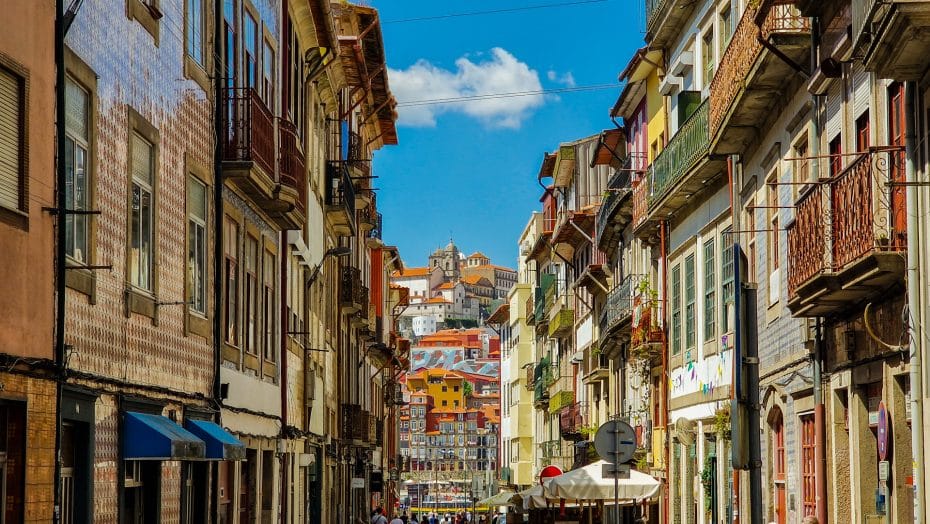
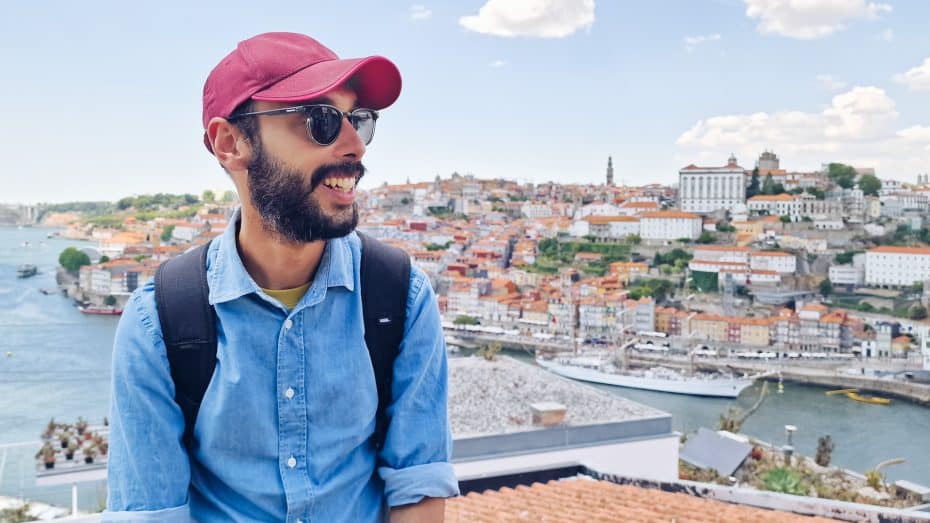
Our latest jaunt to Porto was a whirlwind of culture and cuisine, packed into a brisk two-day adventure. Exploring this Portuguese city, we crafted an itinerary that took us through the colorful streets, historic buildings, and along the serene Douro River. Our journey was short but sweet, filled with discoveries at every turn.
During our stay in Porto, we enjoyed staying at Torel Avantgarde. This hotel was a true highlight with its art-inspired decor and attentive service. Each morning, it offered stunning views over the city. Its central location made exploring the city effortless.
The Perfect 2 Days Itinerary in Porto
Day 1: Exploring Porto’s Historic Center & Gaia
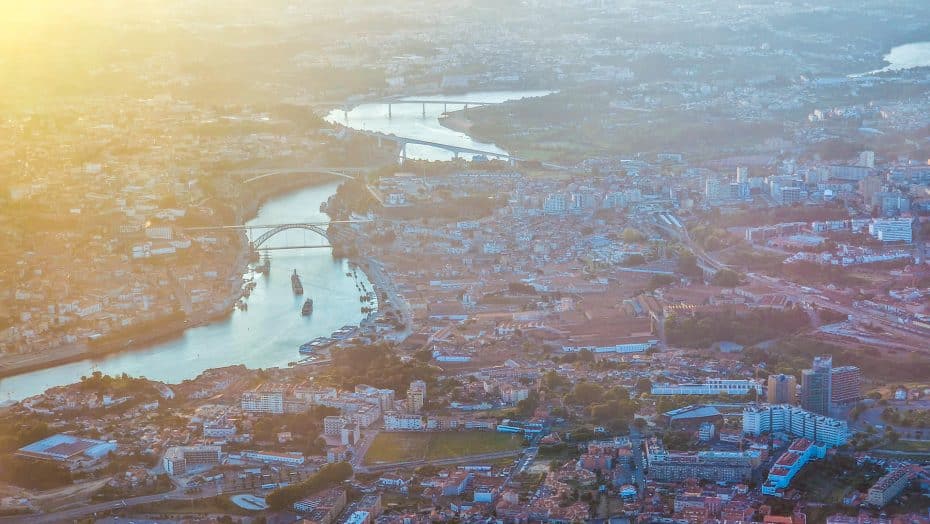
Our flight touched down in Porto while the city was still asleep. Wiping the sleep from our eyes, we grabbed a taxi and headed straight for our hotel, knowing that check-in hours were far off. The staff at the front desk agreed to store our bags while we explored, unburdened by the drag of suitcases.
Morning: Breakfast & Porto City Center
After settling into our hotel in Miragaia, we felt the pang of morning hunger. In search of a place to eat, we strolled over to Torre dos Clérigos, enjoying the morning air.
Not far from the famous tower, we decided to have a bite at Nata Lisboa restaurant on Rua das Flores – a perfect spot for breakfast.
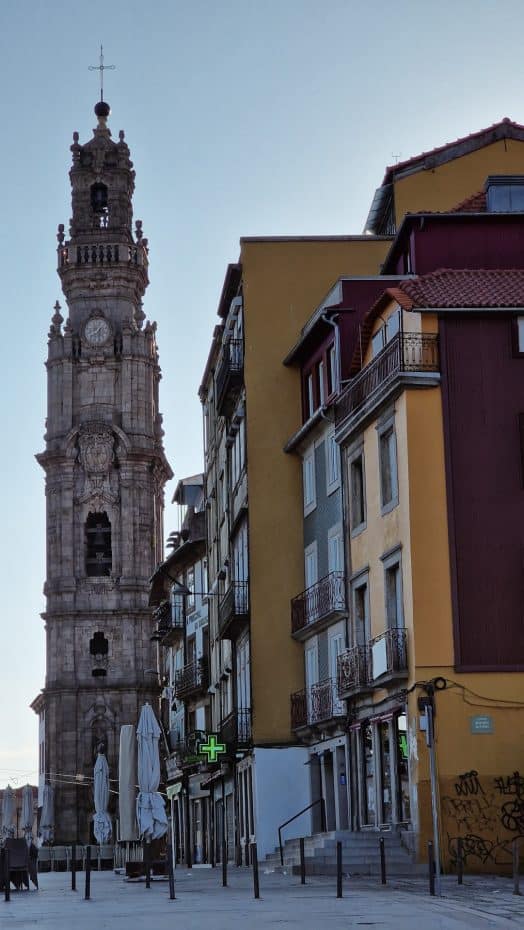
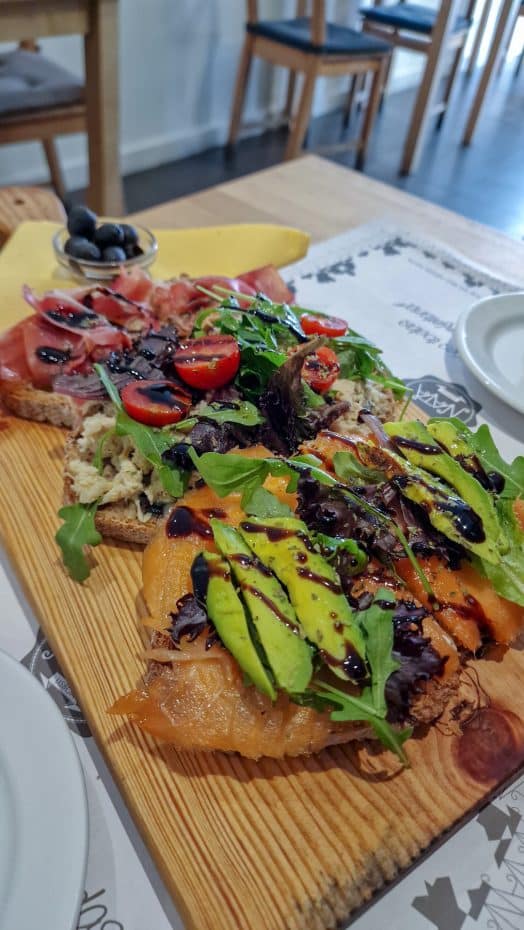
After breakfast, we headed straight to Torre dos Clérigos and its neighboring church. The tower is a stunning Baroque structure that stands prominently in Porto. If you’re up to climbing its 240 steps, you’ll have a panoramic view of the city. It’s definitely worth the effort because when you reach the top, Porto stretches out below in a beautiful urban landscape.
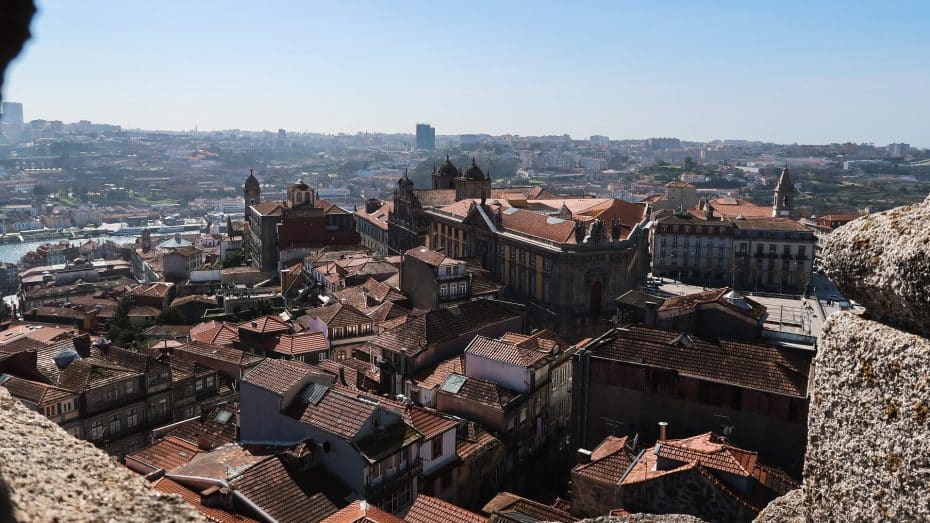
Personal tip: Wear comfortable shoes for the climb—it’s quite a workout for your legs! Also, going early can help you avoid the crowds.
The church of Clérigos is just as impressive, with its incredible detail in its carvings and gold leaf decorations. The light coming through the windows adds to the serene atmosphere.
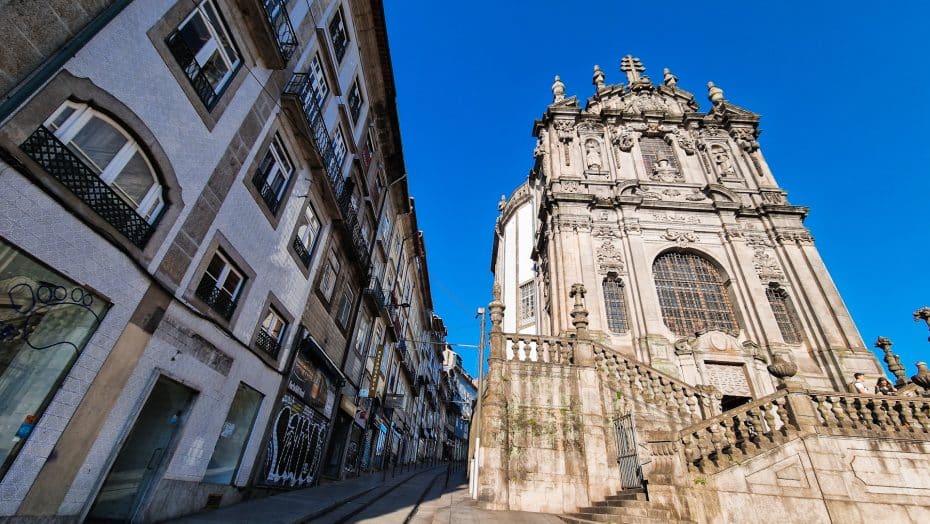
From Torre dos Clérigos, we strolled back to Rua das Flores to enjoy the lively atmosphere of this pedestrian street, full of cafes, restaurants, and local boutiques. It’s a great spot to unwind after climbing the tower, grab a quick bite, or sip some coffee while people-watching.
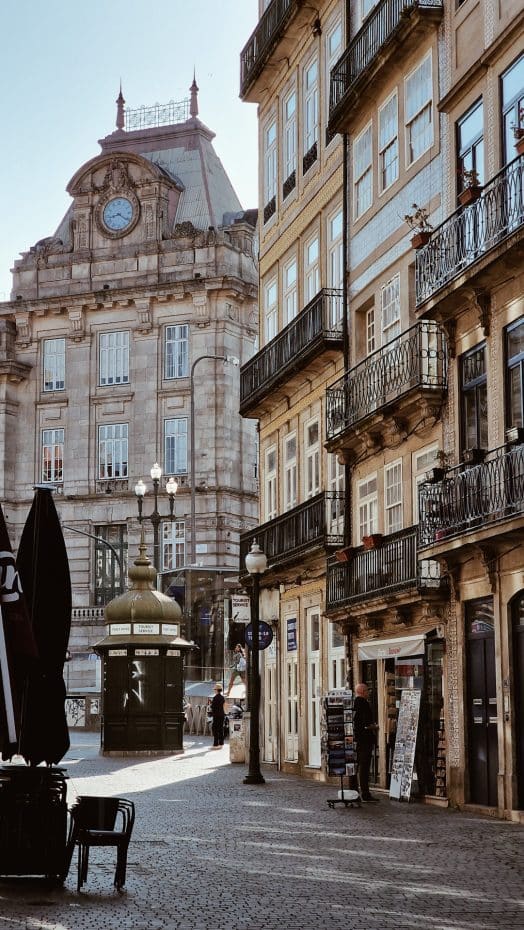
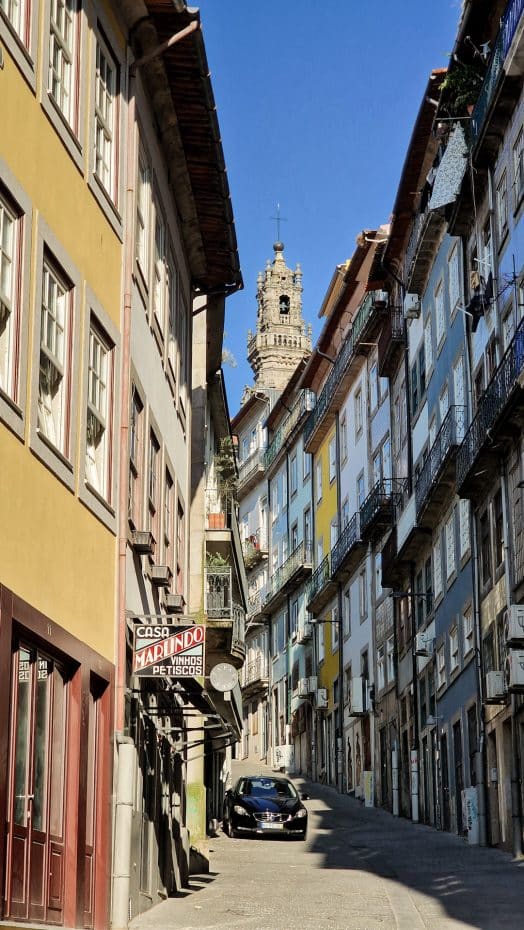
Afterward, we made our way to Palácio da Bolsa, a stunning neoclassical building that once housed Porto’s stock exchange. Make sure you don’t miss the exquisite Arabian Hall with its mesmerizing golden decorations. Booking a guided tour in advance is highly recommended, as it’s usually pretty crowded.
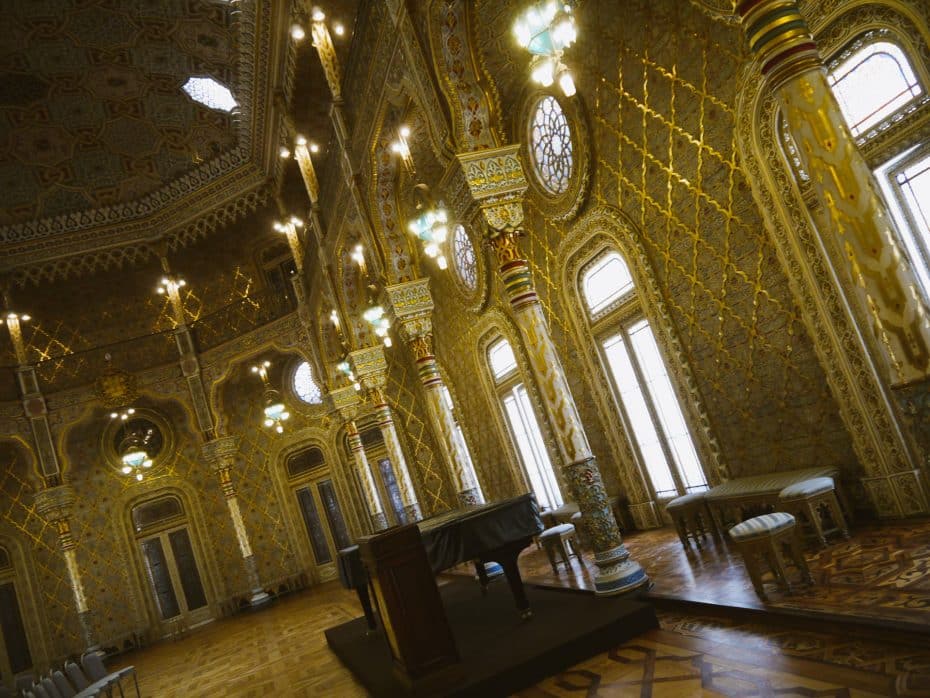
Built between 1842 and 1910, this magnificent palace was originally the headquarters of the Porto Commercial Association. The Arabian Hall was inspired by the Alhambra Palace in Granada, Spain. Adorned with intricately carved plasterwork, gold leaf accents, and geometric patterns, it is a true masterpiece.
In addition to the Arabian Hall, the Palácio da Bolsa features notable rooms, such as the Courtroom and the Golden Room.
Midday: Miradouro da Victoria & Ribeira district
For lunch, we decided to try Galeria do Largo, a cozy spot located in the heart of Porto’s historic center. This restaurant offers a menu that focuses on traditional Portuguese dishes with a modern twist. Their focus on fresh, local ingredients comes through in every dish. We had the sardine rissoles and the salmon linguine paired with local white wine.
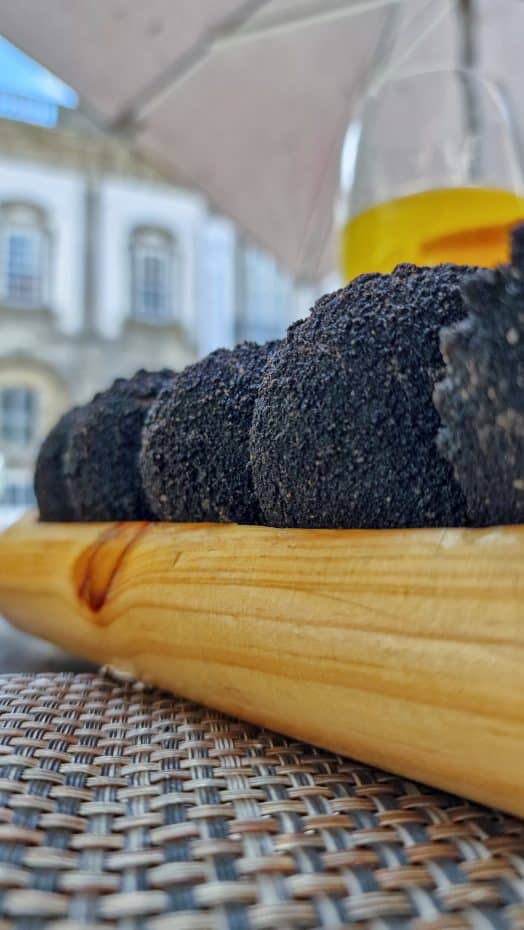
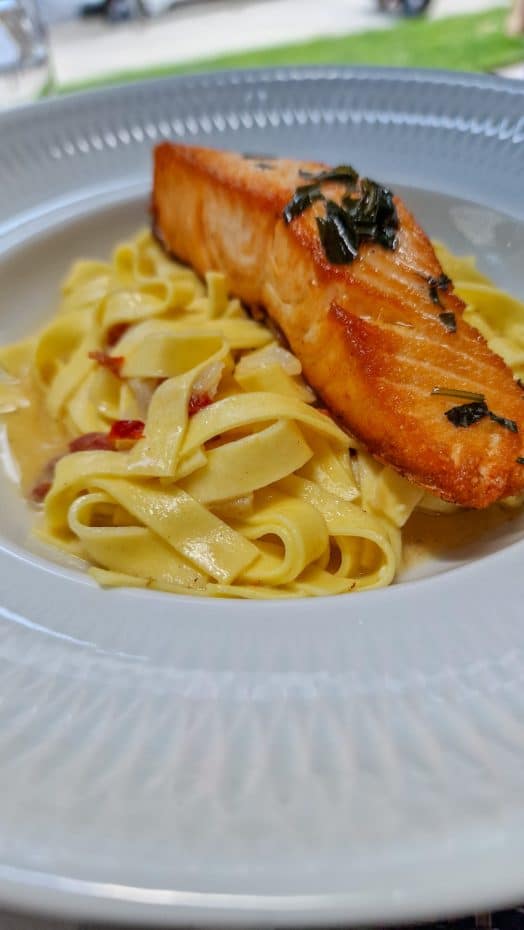
After refueling, we headed out to Miradouro da Victoria, one of the best viewpoints in the city. The walk up there is quite a hike, but absolutely worth it for the panoramic views over the Douro River and Porto’s skyline that it offers once you get to the top. It’s not as crowded as some of the other viewpoints around Porto, which means you can take your time soaking in the views without feeling rushed.
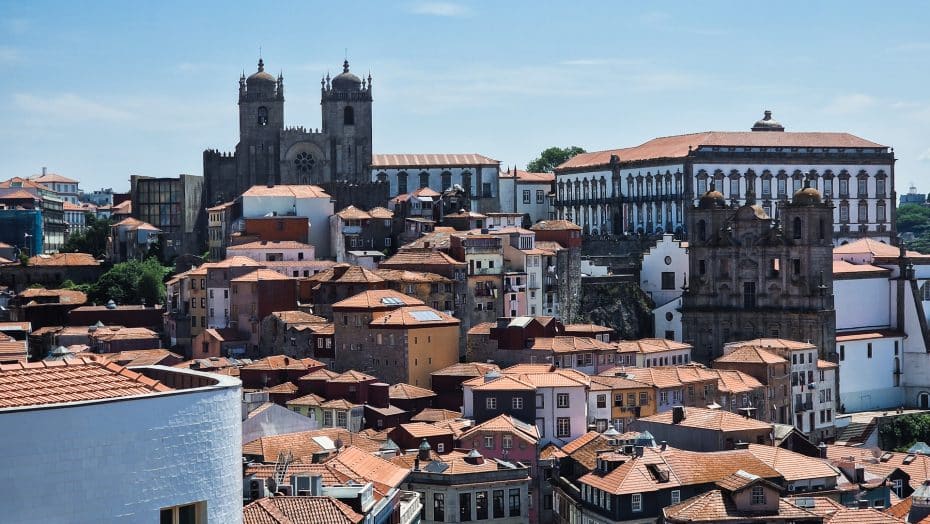
From the scenic Miradouro da Vitoria, we ambled down to the Ribeira district. This district hugs the Douro River with its colorful pressing against the water’s edge. Traditional Rabelo boats bob on the waves, while the iconic Dom Luis I Bridge spans the river nearby.
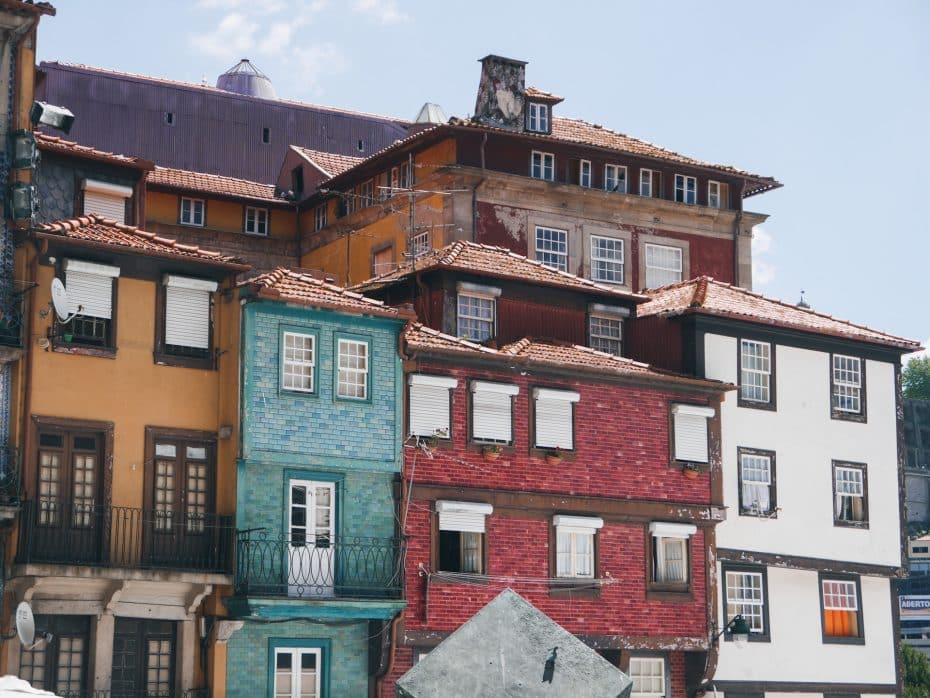
Ribeira is a maze of narrow streets and picturesque plazas, lined with family-owned shops, street performers serenading passersby, and cafes. It’s home to Porto’s famous azulejo-tiled colorful homes.
Personal tip: this is the perfect time to embark on a Porto River Douro boat tour.
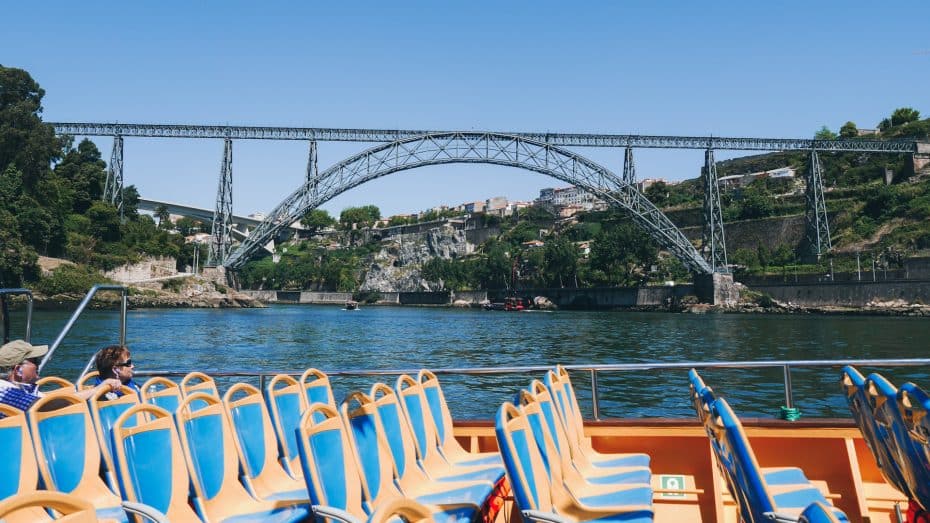
Afternoon: Dom Luis I Bridge & Vilanova de Gaia
After the boat tour, a short walk from the lively area of Ribeira leads to one of Porto’s most iconic structures, the Dom Luis I Bridge. Spanning the Douro River, this metal arch bridge connects Porto to Vila Nova de Gaia. For a touch of history, the bridge was designed by a student of Gustave Eiffel and completed in 1886, echoing the aesthetic of the famous Eiffel Tower.
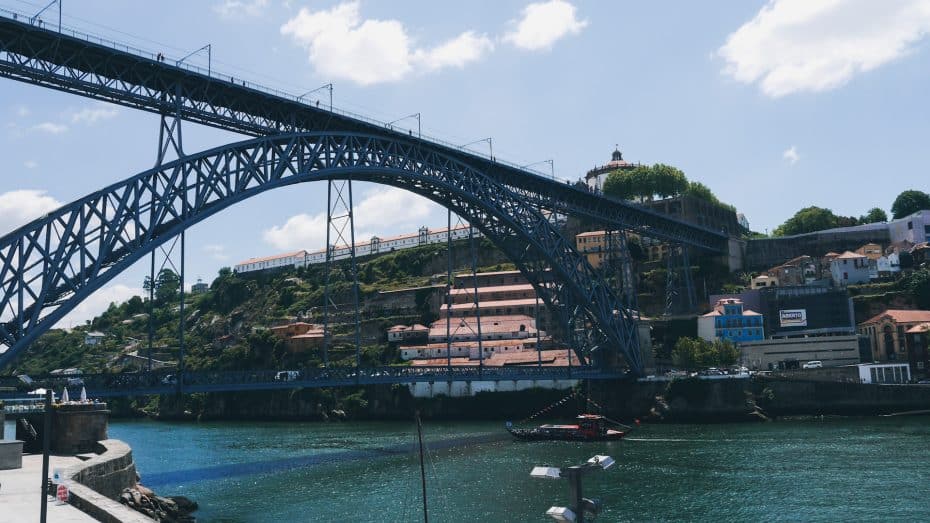
Walking across the bridge at the upper deck offers a breathtaking viewpoint over the city and river — it’s definitely worth stopping for a few photos! The lower deck is also accessible and popular among those crossing by foot or using public transportation. After sunset, it’s an especially beautiful sight as the lights reflect on the water below.
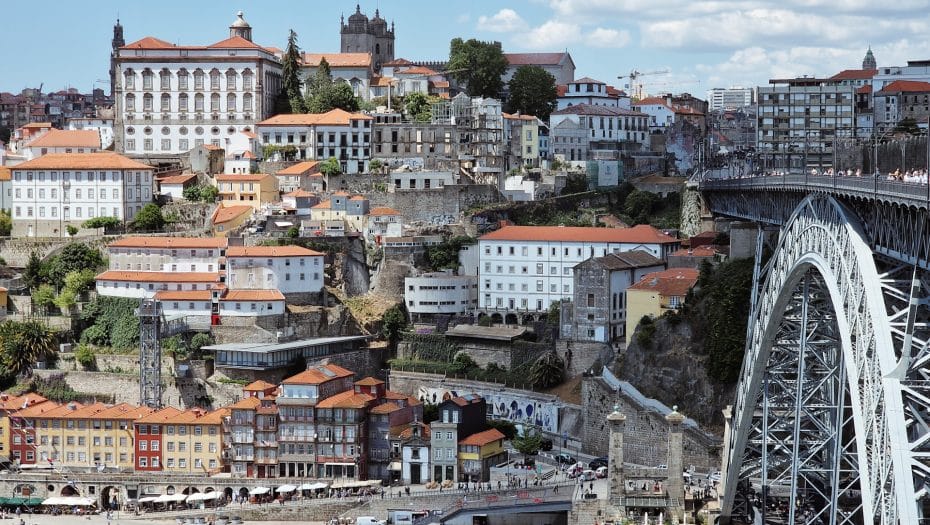
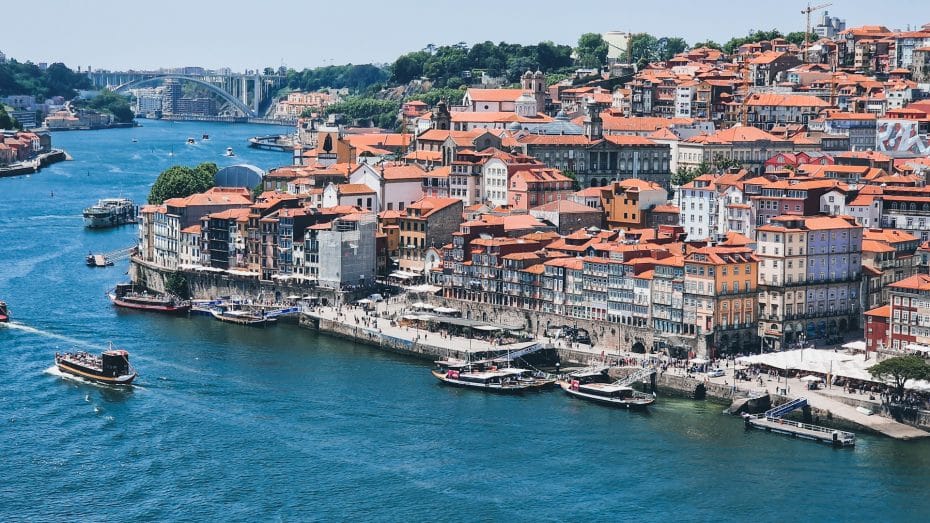
Personal tip: visit at dusk for an awe-inspiring view as the sun dips below the horizon, adding warm hues to your memorable snapshots of Porto.
After crossing the Dom Luis I Bridge, our next stop is Vila Nova de Gaia, home of the renowned port wine cellars. Here, a visit to Taylor’s is a highlight, where the tradition of port wine production comes alive. Port wine, proudly known as Porto’s liquid gold, has been integral to the city’s history and economy for centuries.
We find ourselves at the doorstep of Taylor’s, a renowned Port wine cellar. This cellar offers a chance to try one of Portugal’s most famous exports and an insightful peek into the tradition and skill behind Port wine production. You can book the tour we took here.
During our time at Taylor’s, we delve into the nuances of Ruby and Tawny Ports—the former being fruity and vibrant, often aged in bulk for a shorter period; the latter complex and mellow from longer aging in wooden barrels. Our guide suggests sampling both to appreciate their differences.
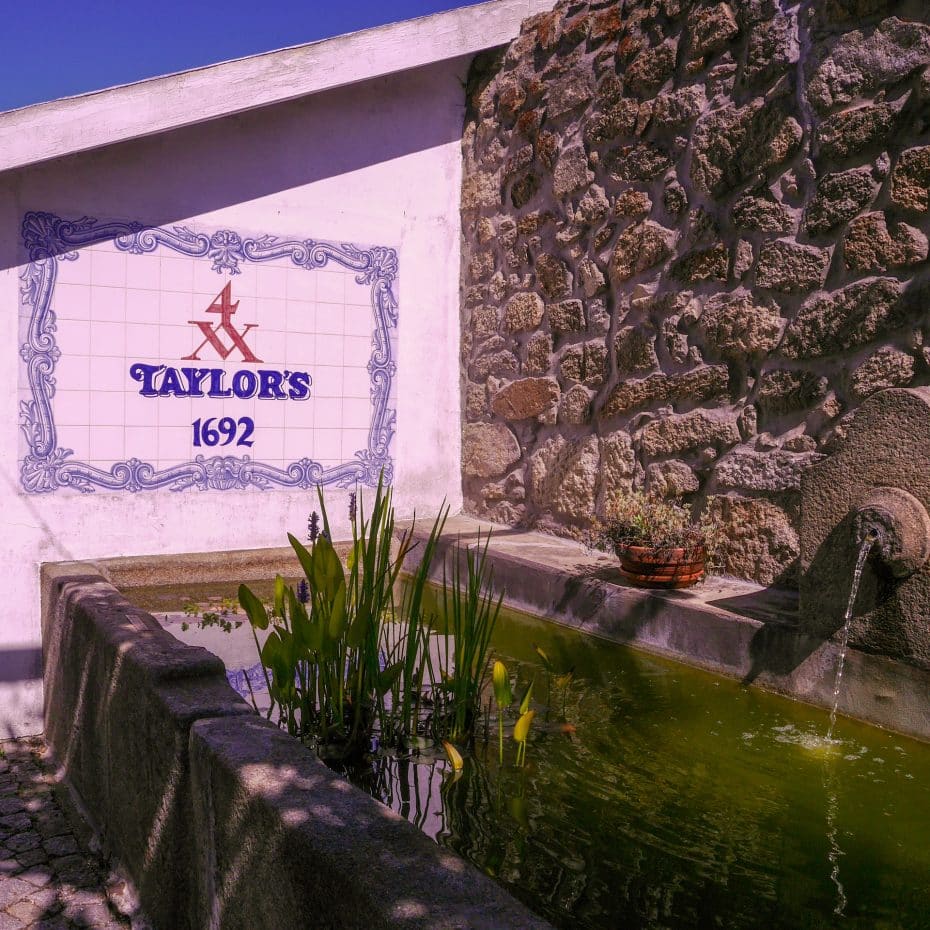
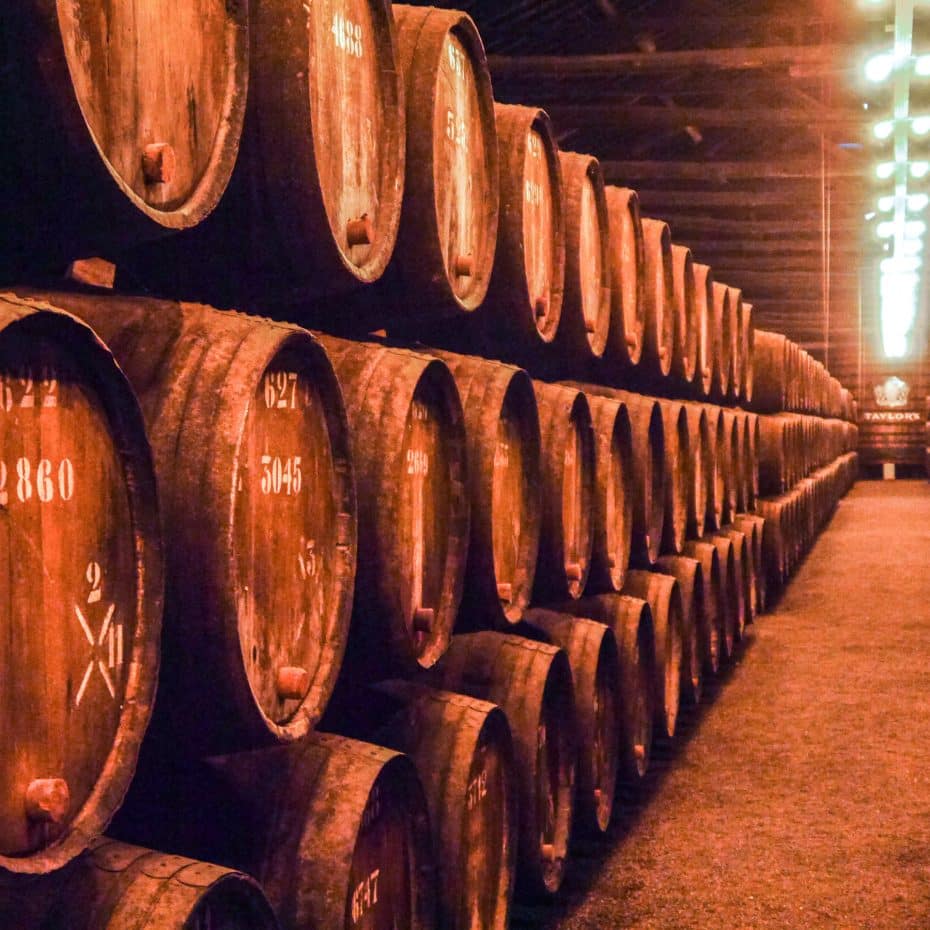
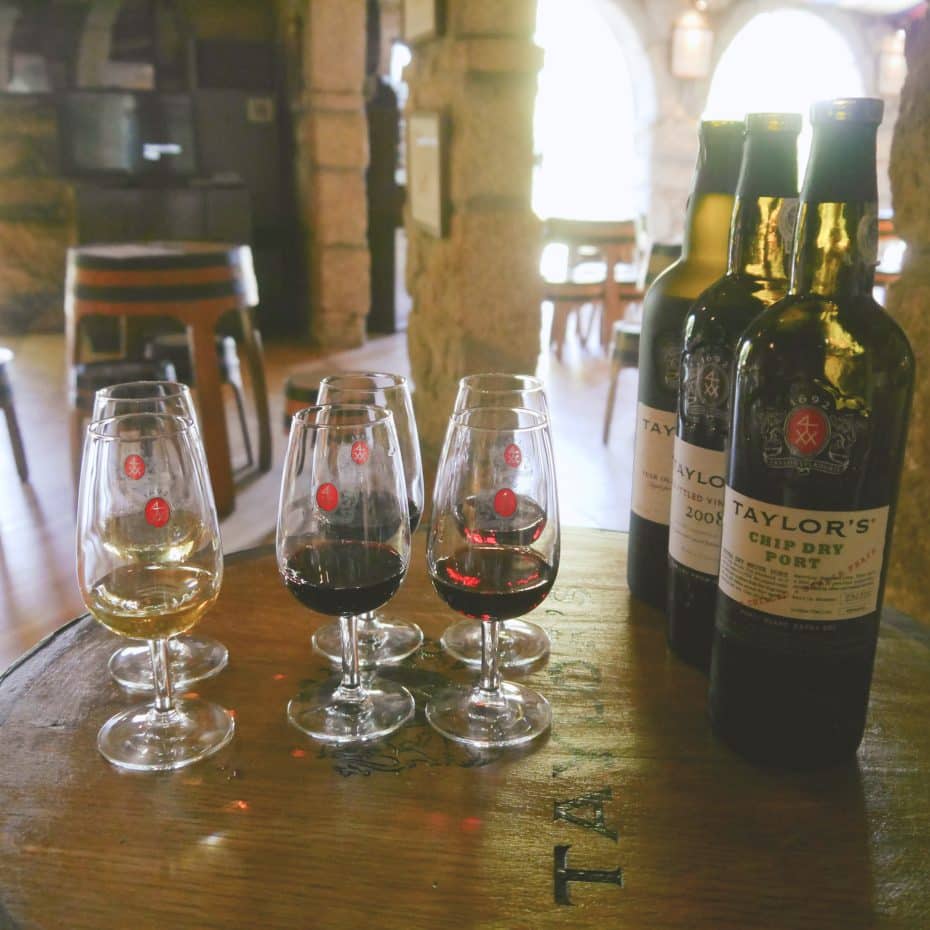
Evening: World of Wine Porto
After exploring the delightful nuances of port wine at Taylor’s, curiosity (and, let’s be honest, slight drunkenness) led us to continue our exploration of Port wine but with a twist, and we found just the spot: World of Wine. With its catching acronym WOW, this recent addition to Porto’s cultural scene showcases the rich wine-making tradition.
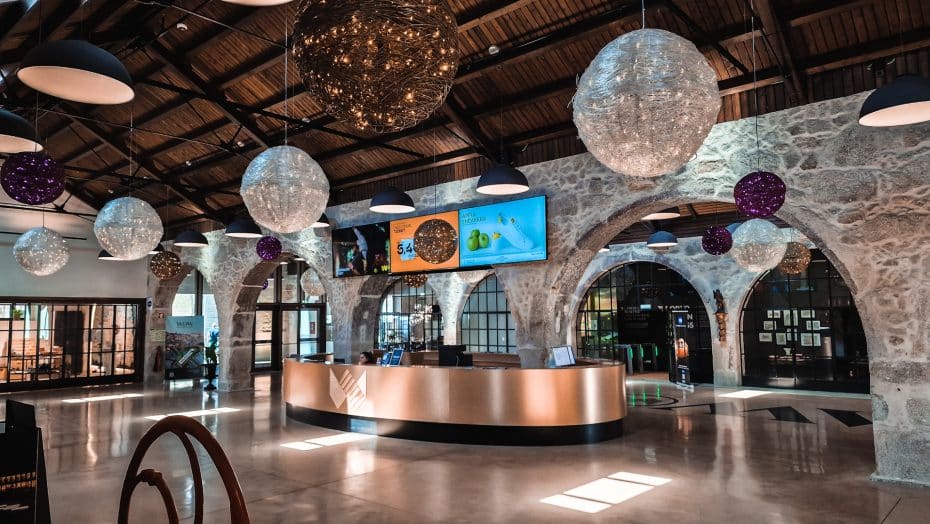
As we meandered through the interactive exhibits, it was evident that this wasn’t just another wine center—it was a homage to the craft itself, marrying tradition with a modern presentation that keeps you hooked. Don’t miss their wine school, which allows you to learn about and taste different varieties.
Personal tip: even if you don’t drink or don’t want to visit another wine-centered attraction, visit WOW if only for the breathtaking views.
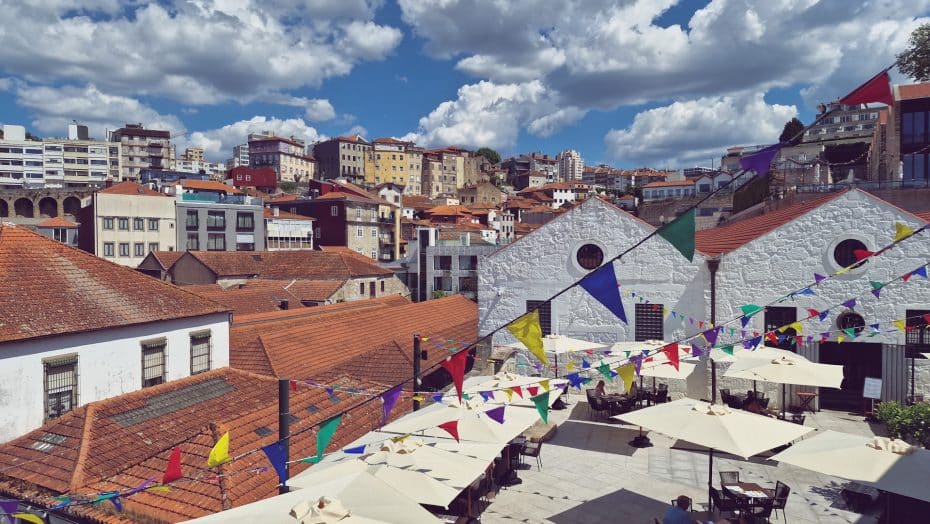
Since we were already at a foodie’s paradise, we settled in for a meal at WOW and had tapas accompanied by a glass of crisp Quinta do Mascanho Alvarinho.
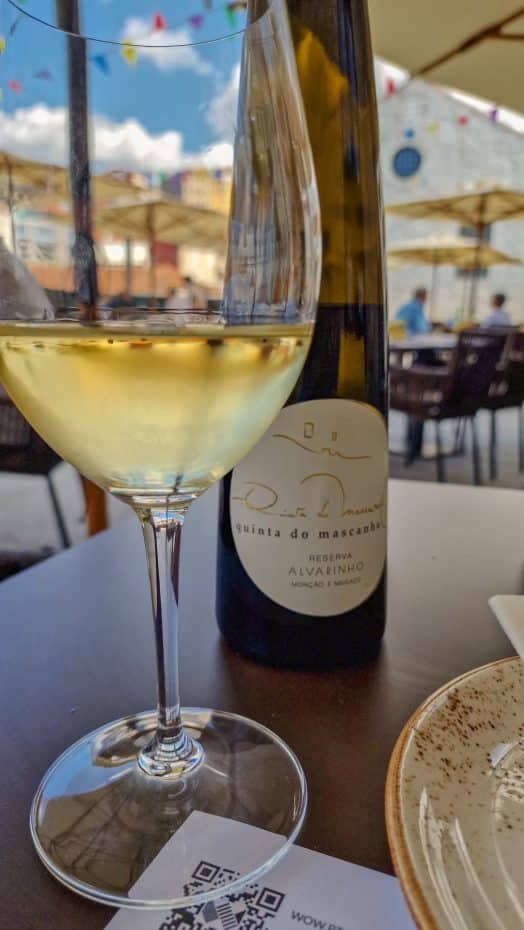
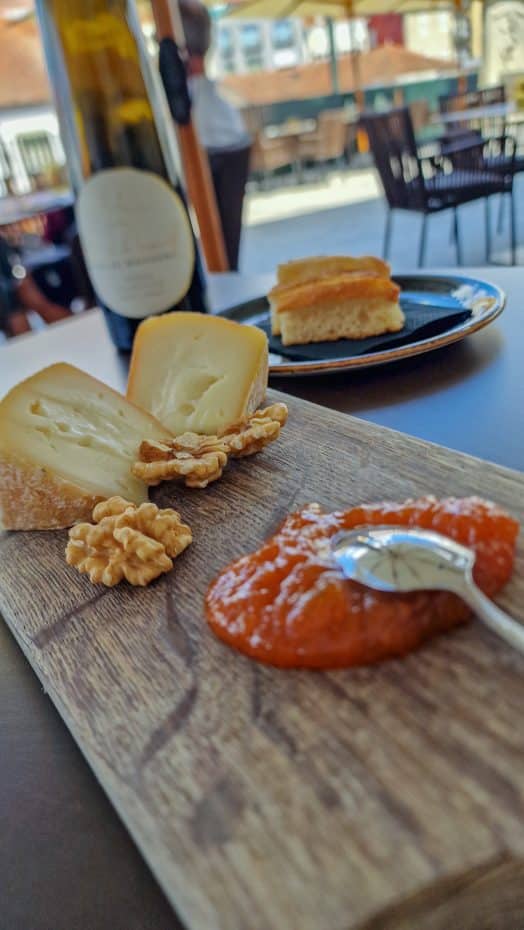
After an exhausting first day exploring Porto, we retreat to our hotel to recharge for tomorrow’s adventures.
Day 2: Discovering a Lesser-Known Side to Porto
Waking up refreshed, we begin our second day with breakfast at the hotel and a quick dip in the pool. After all, what’s the point of staying in such a nice place and not enjoying its amenities?
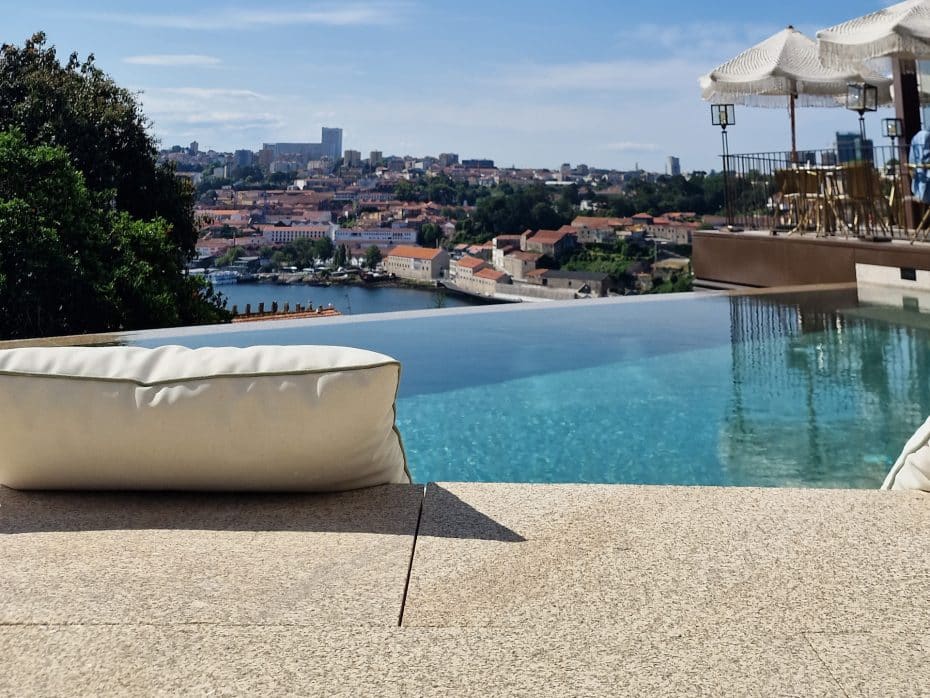
Morning: Guided Tour to Secret Porto
After an early morning dip in the pool and a satisfying breakfast, we prepared to meet our tour guide for the “Porto: 2.5-Hour Private City Tour Off the Beaten Track.” The meeting point was near the public library, which brilliantly positioned us to visit some notable spots along our way.
One striking feature we encountered was the Porto City Hall. From its dominant perch, the building oversees the bustling square below. The city hall’s façade is a work of art, displaying intricate sculptures and grand columns. Construction on this monumental building began in the early 20th century, around 1920, but due to various interruptions, it wasn’t completed until the 1950s.
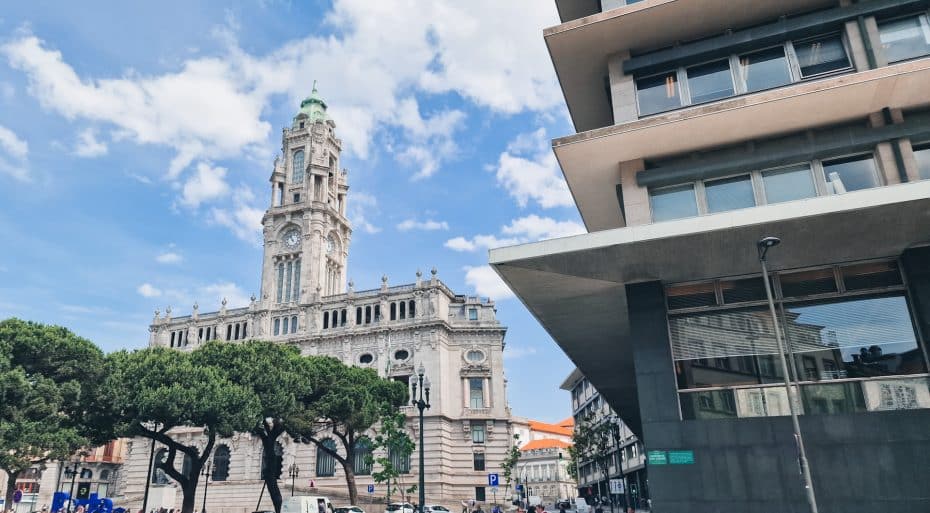
Then, we meandered through São Bento Station, with its impressive atrium lined with traditional blue-and-white tile panels depicting scenes from Portugal’s history. It’s not just a train station but a work of art that tells stories of past battles and transport evolution.
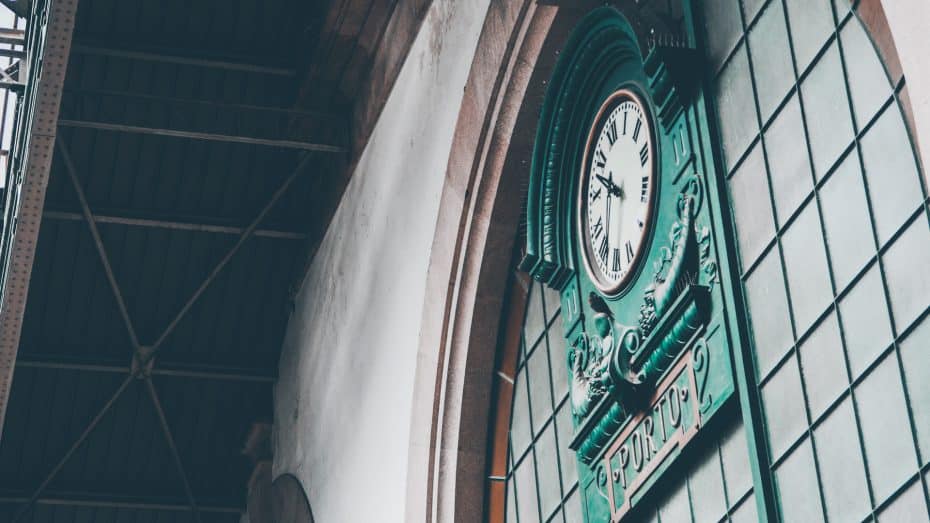
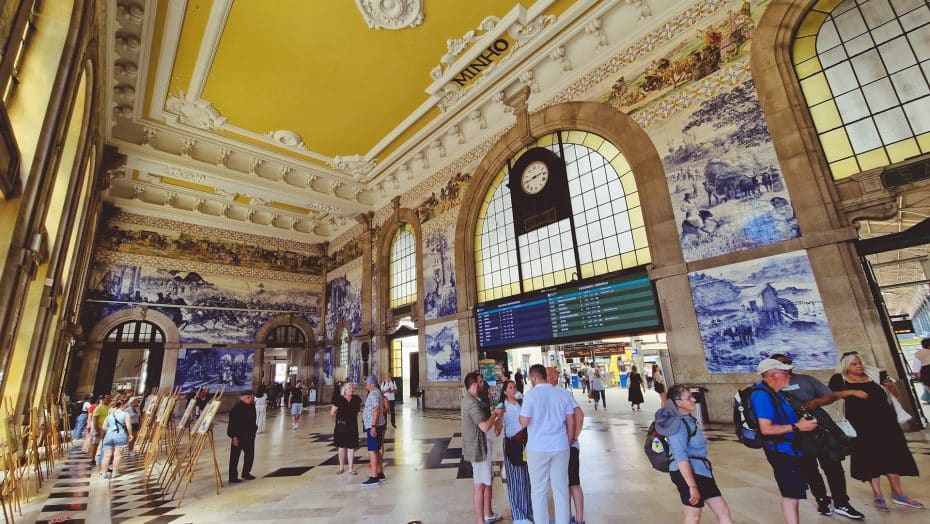
Next, we explored Bolhão Market, a buzzing space where fresh produce, meats, fish, and flowers are hawked by friendly vendors. It’s a feast for the senses and gives an authentic peek into Porto’s daily life. Popping in before the stalls get too busy means seeing the market at its most vibrant without the shoulder-to-shoulder crowds that can form later in the day. Plus, if you fancy trying out local snacks or picking up fruit for the road—this is the perfect place!
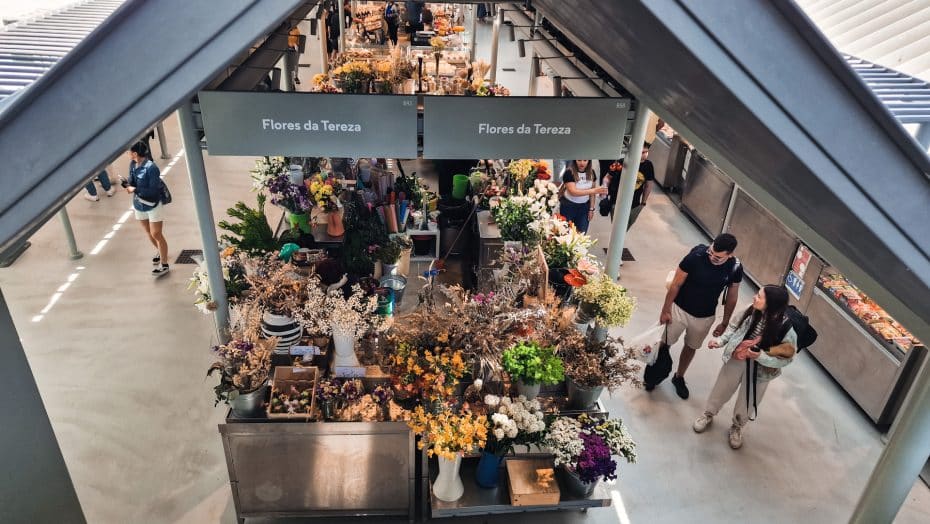
We arrive on time at the designated spot to greet Jorge, our local guide who will help us uncover Porto’s lesser-known spots that don’t make it into the typical travel guides.
On the second day of exploring Porto, we decided to take a different path on our guided tour. Having explored the well-trodden paths the previous day, we asked our guide to show us the lesser-known parts of the city. This was a perfect choice, revealing a side of Porto many visitors miss.
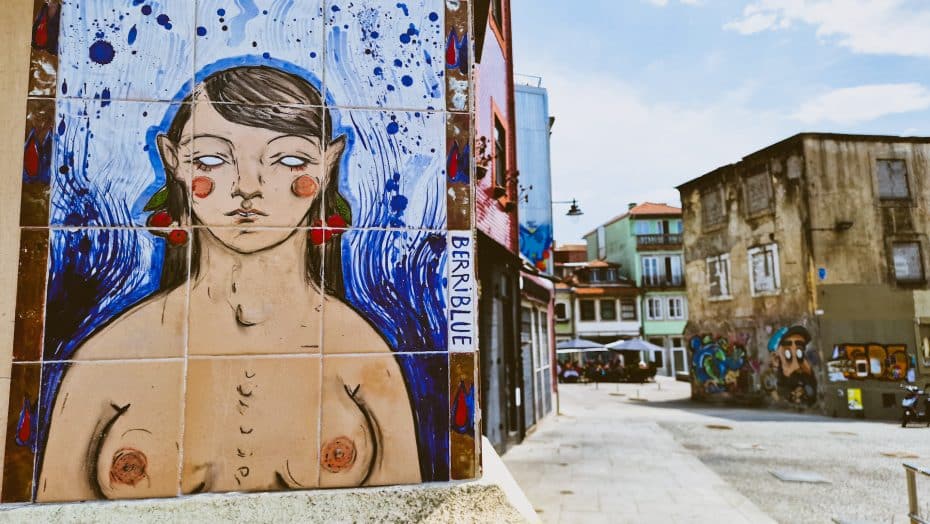
Our guide took us to Bairro Herculano, a little-known area in Porto that seems to exist in its own timeless bubble. Walking through its narrow streets was a true departure from the bustling city life. The neighborhood boasts aged, colorful houses with traditional Portuguese architecture holding stories of a bygone era.
Tucked away behind Alexandre Herculano Street, the neighborhood was built in the 19th century, specifically in 1886, when Porto was rapidly industrializing. The city’s growth attracted many from nearby areas to work in the factories. During this period, worker housing complexes and neighborhoods were constructed to accommodate those arriving in the city. Among them was the Herculano neighborhood.
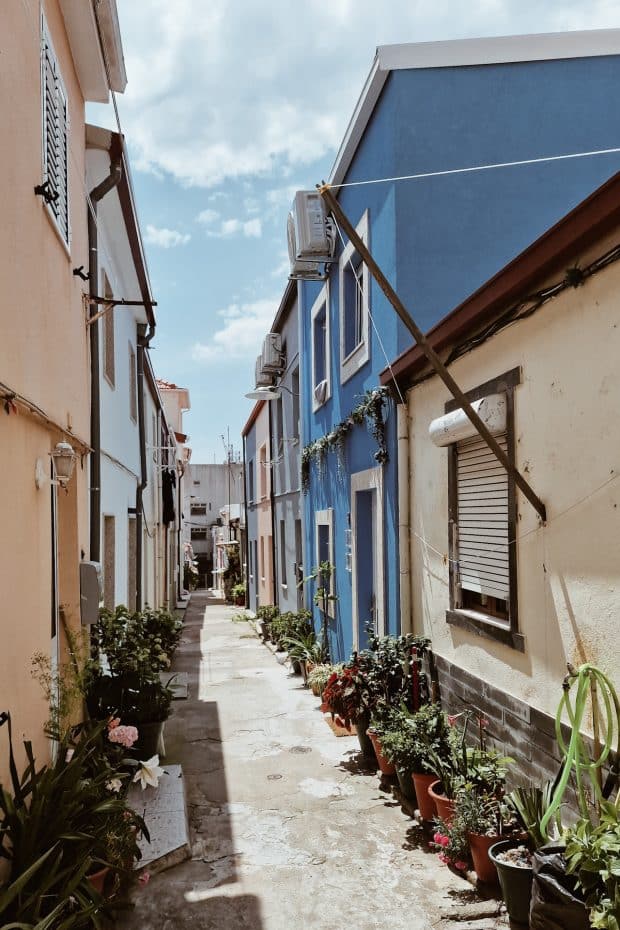
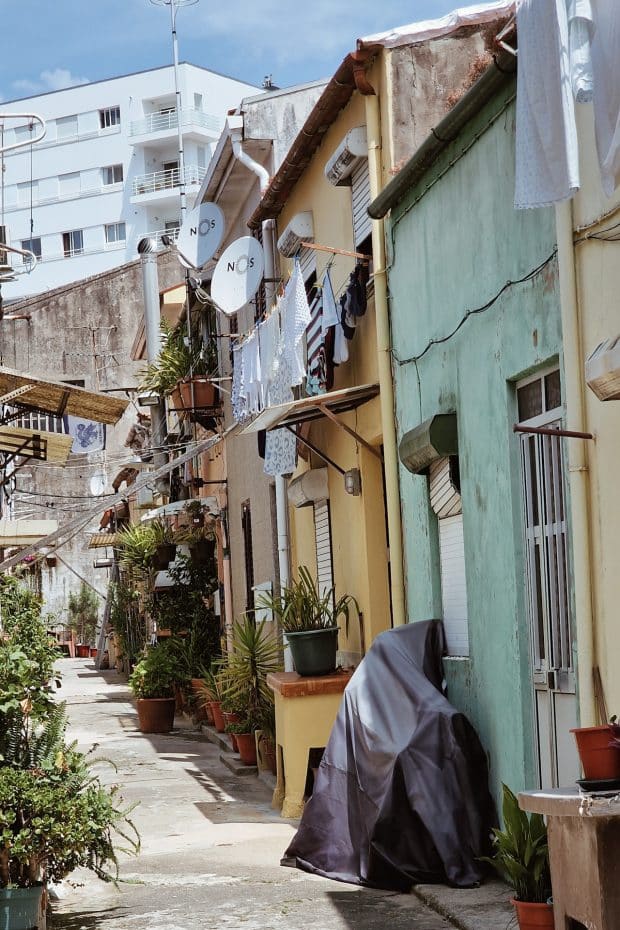
Following our guide, we made our way toward the Douro River and discovered the monument to Carquejeiras.
In Porto, Carquejeiras are traditionally female figures known for their distinctive occupation of selling carqueja, a bushy plant common in Portugal. These women would usually carry the plants on their heads, traversing the city streets. The image of Carquejeiras is often associated with Porto’s resilience and hardworking spirit.
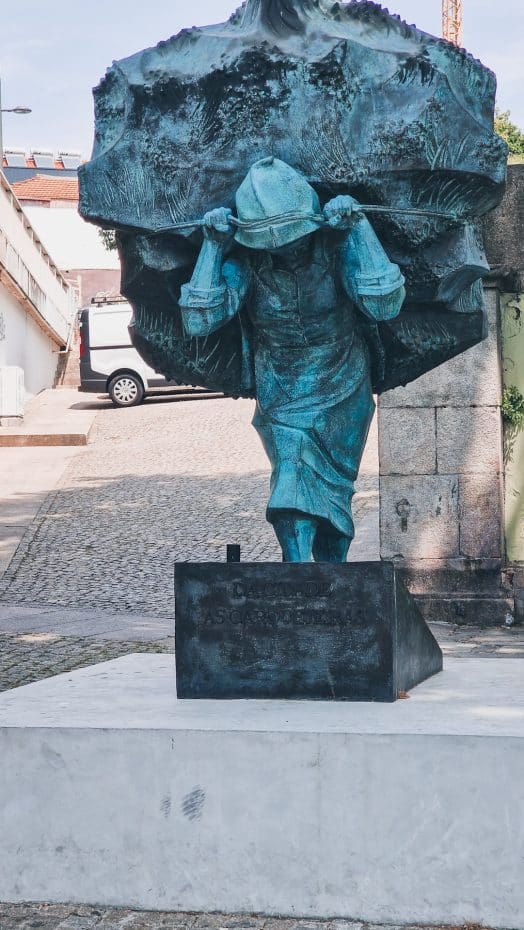
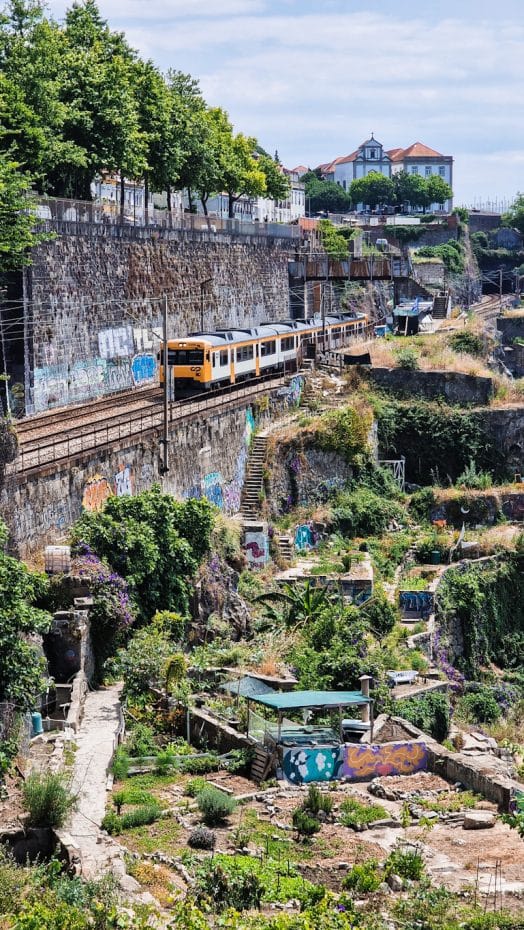
The riverfront along Calçada das Carquejeiras offers impressive views of an unknown side of the Douro River.
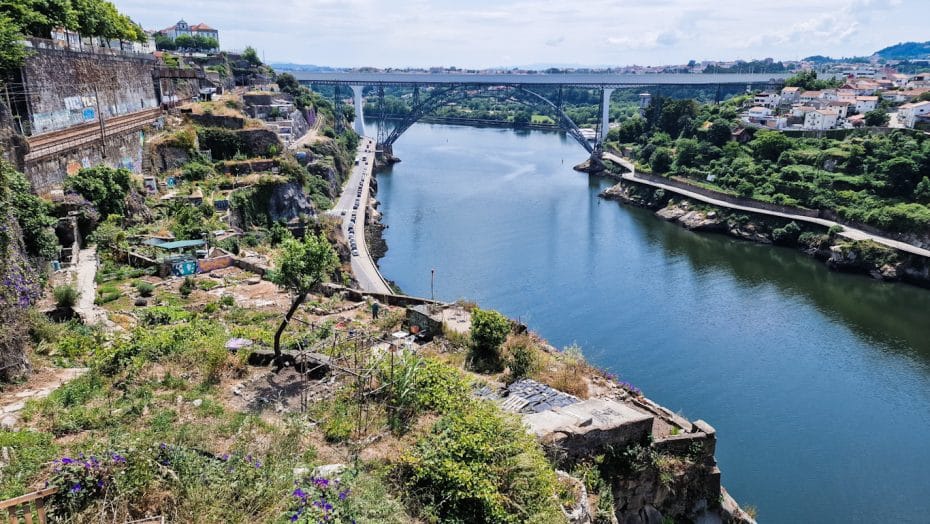
From Carquejeiras, we make our way up narrow cobbled streets, buzzing with the casual rhythm of daily life, to reach the Church of Saint Ildefonso. During our walk, we stumble upon an old medieval wall section, still standing amidst the city’s more modern structures.
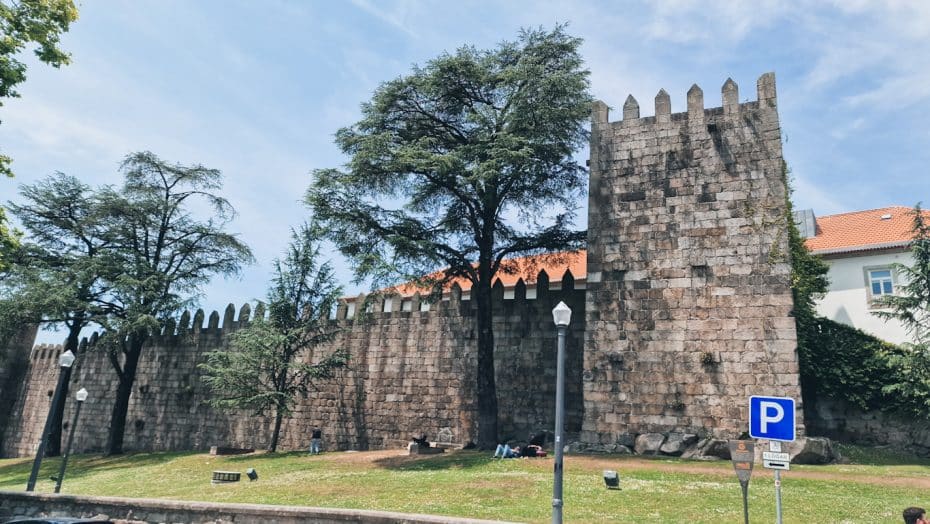
The Church of Saint Ildefonso, with its striking blue and white tiled facade, is a noteworthy landmark in the city and an unmissable attraction for a 2-day trip to Porto. Completed in 1739, this baroque church draws immediate attention with its two bell towers and complex azulejo panels that depict scenes from Saint Ildefonso’s life and allegories of the Eucharist. The tiles were added in 1932 and designed by artist Jorge Colaço.
The interior impresses with its gilded woodwork and ornate retable above the altar when you step inside. The church stands atop a hill, which means you’ll have to climb a few dozen steps to reach it, but it’s well worth the effort for the church itself and the views over downtown Porto.
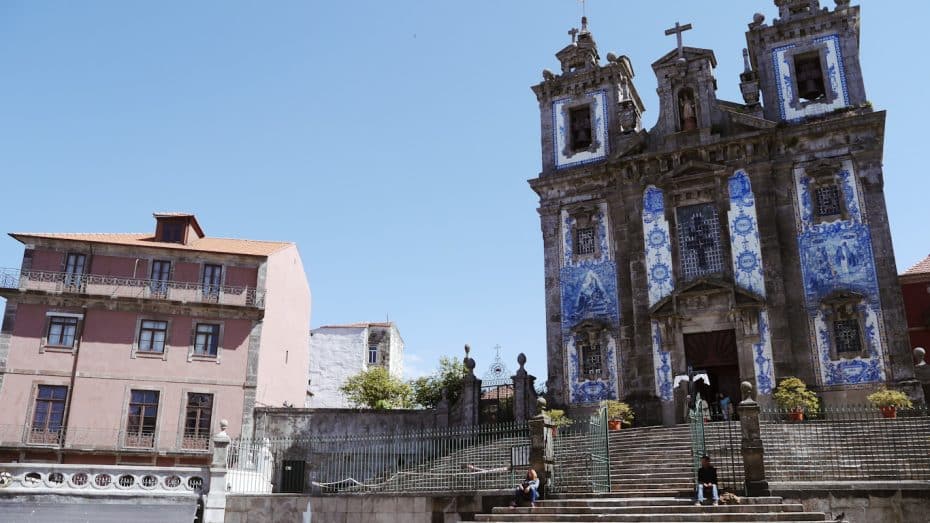
We pass the Batalha Cinema nearby. This building is a highlight for anyone passionate about design and architecture. Originally opened in 1947, this historical movie theater was once at the forefront of Porto’s cultural scene. The building’s facade, with its curved lines and geometric forms, is an exquisite example of Art Deco style.
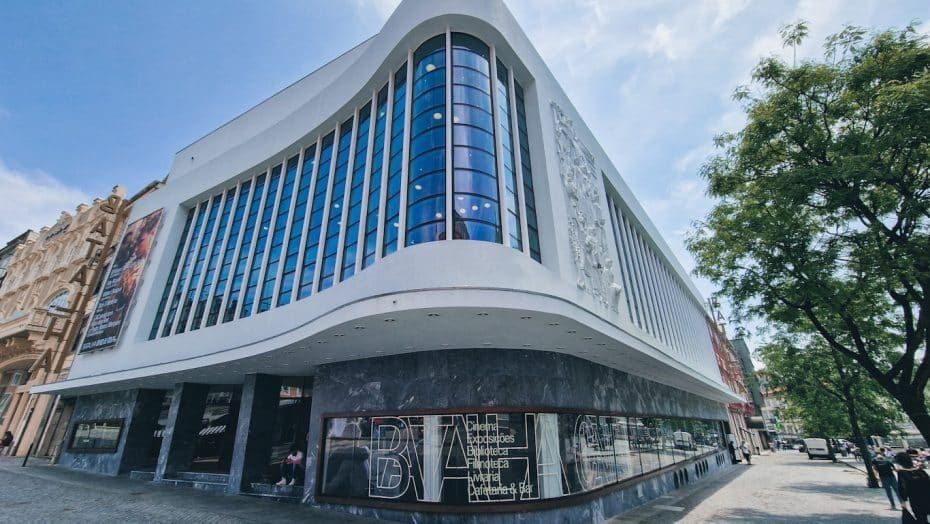
As an Art Deco buff myself, I was thrilled to step inside and admire its beautifully detailed murals.
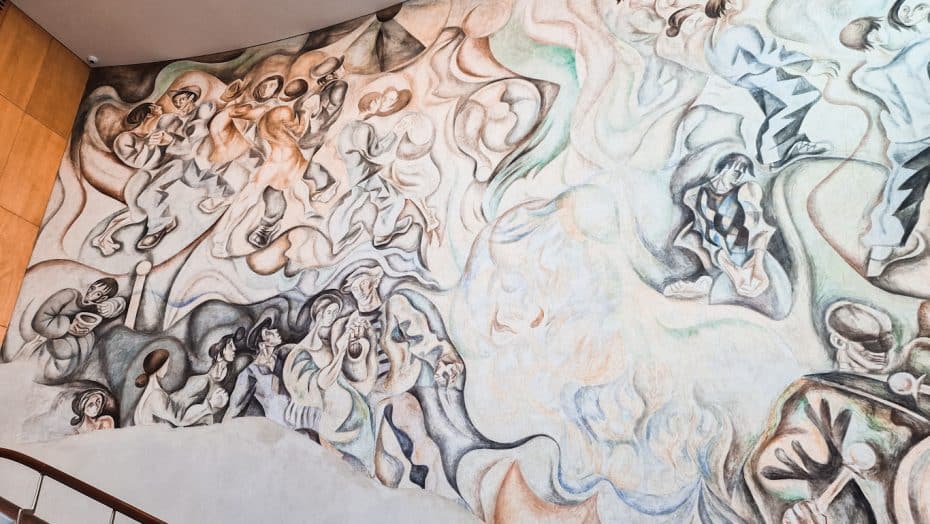
As we navigate through the charming streets of Porto on our way to Pinheiro, another Porto hidden gem, we stumble upon vibrant street art and gorgeous turn-of-the-century architecture.
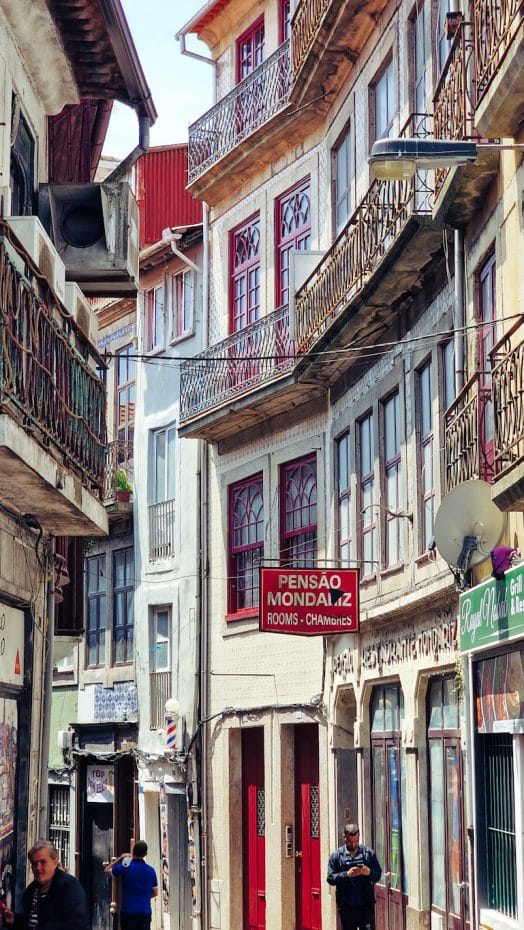
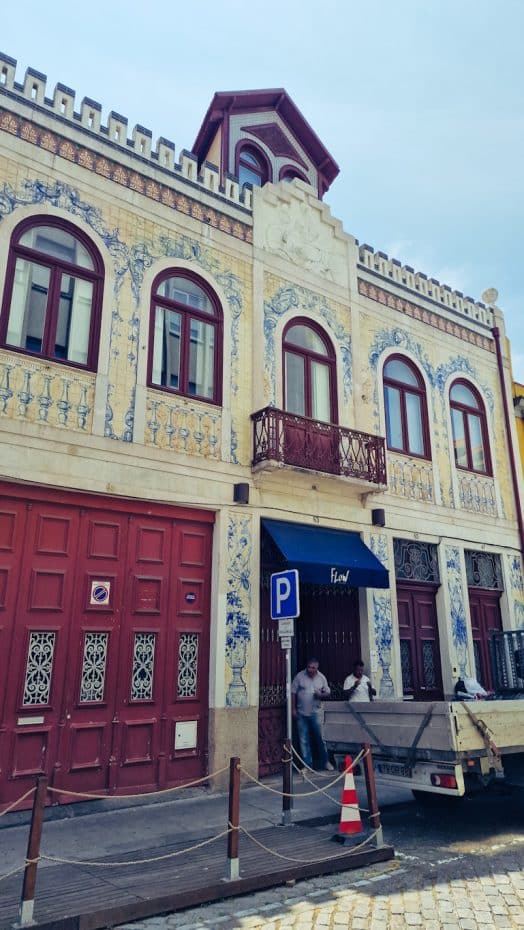
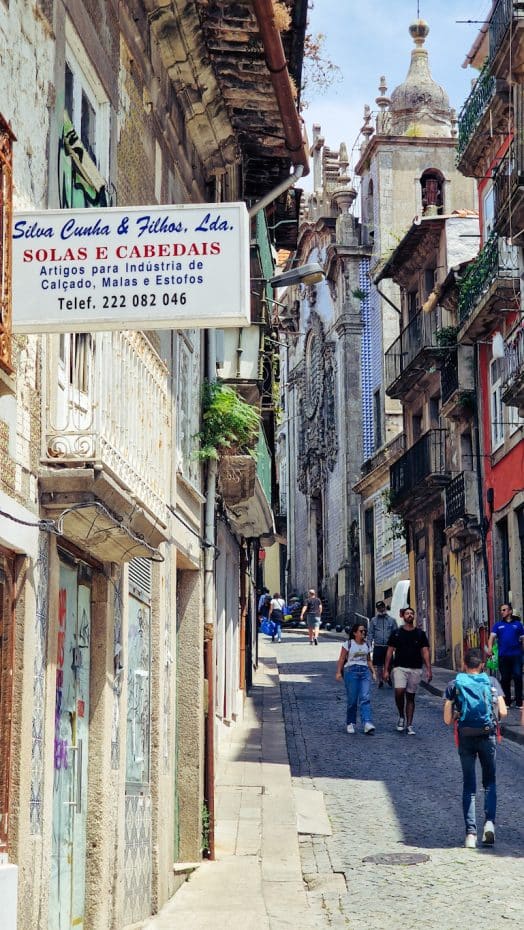
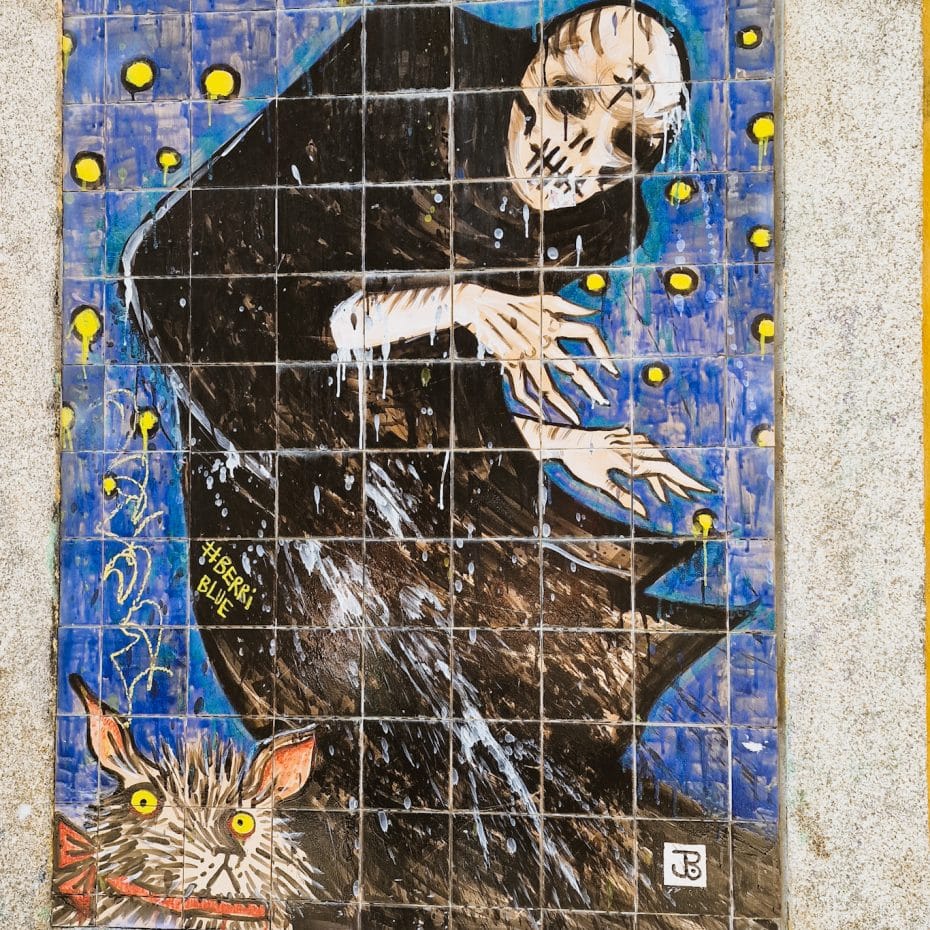
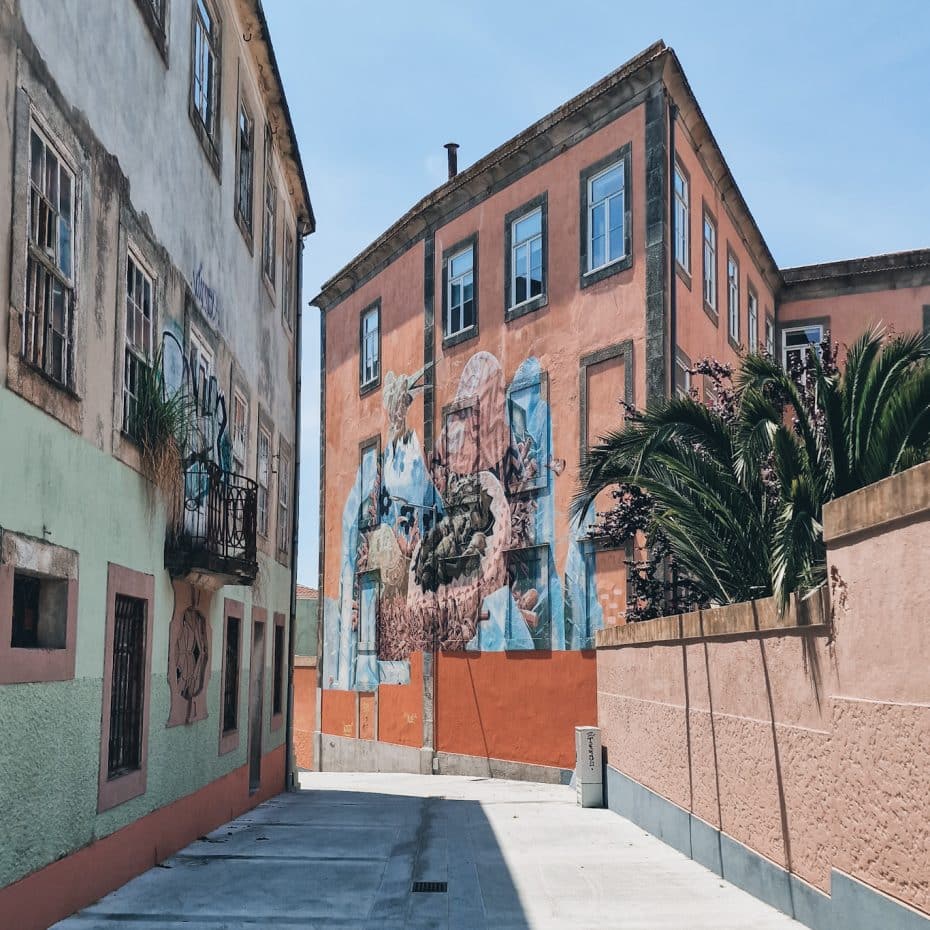
After wandering through the narrow streets of Pinheiro, we said goodbye to our guide Jorge, our guide, at Praça de Parada Leitã. By this point we’re famished!
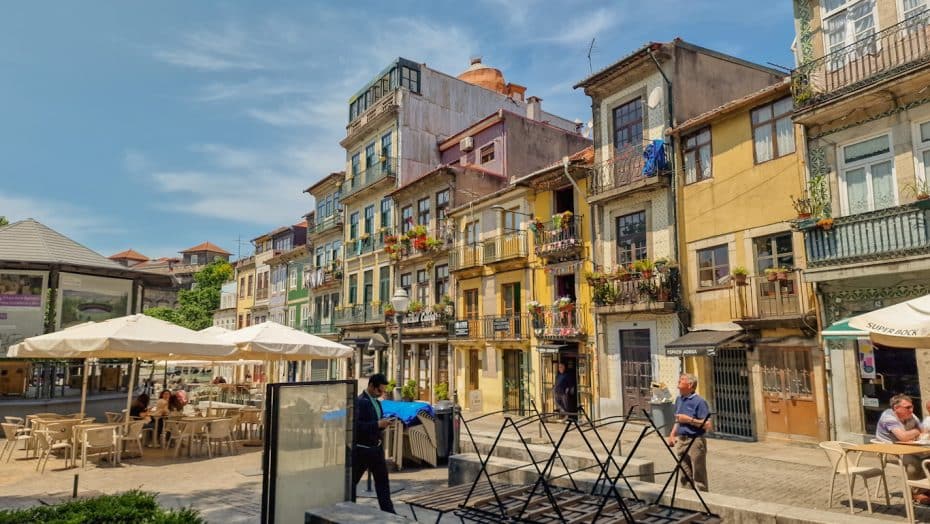
Midday: Exploring Cedofeita
Before we look for a place to eat, though, we stumble upon Igreja do Carmo, one of Porto’s most beautiful churches.
Igreja do Carmo stands out for its azulejo tilework covering one of its exterior walls. The church was completed in the 18th century and is a remarkable example of late Baroque architecture with Rococo-style elements.
A curious fun fact about Igreja do Carmo is the narrow house wedged inconspicuously between it and the neighboring Igreja dos Carmelitas. This tiny dwelling was constructed to ensure the separation between the two churches because religious rules of the time forbade different monastic orders from sharing walls. This house is now called “the Hidden House.”
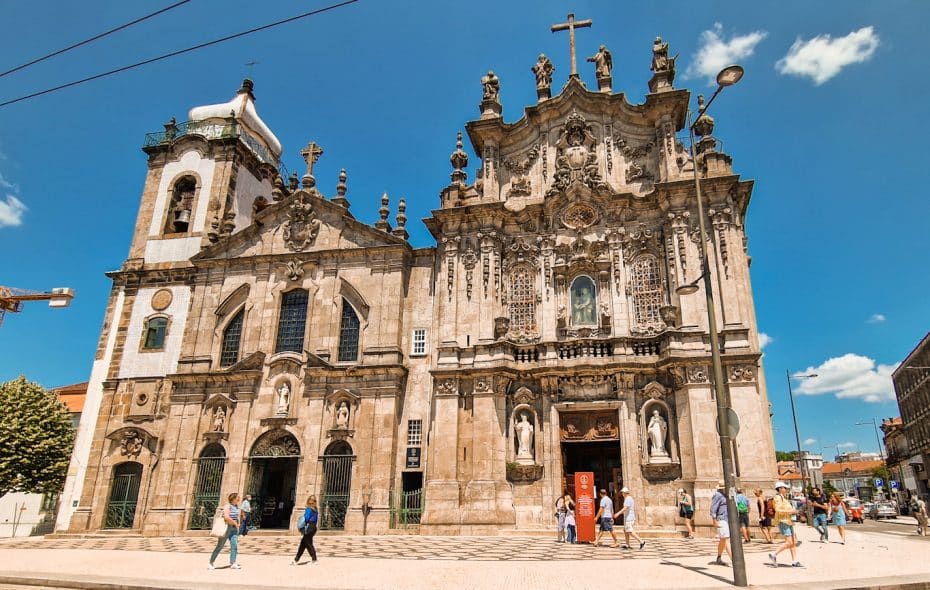
A short walk from the square leads us to Rua de Cedofeita, a busy street with authentic local flavors. Here, we stumble upon ‘1858 bbgourmet criativo,’ a great spot for Portuguese cuisine. I had the cod risotto.
Afternoon: Rua Miguel Bombarda
After our delightful lunch, we make our way to the dynamic district of Bombarda, often regarded as the heartbeat of Porto’s creative scene. This bustling area is a haven for art lovers, with numerous galleries, colorful streets, and street art, giving the neighborhood an edgy vibe.
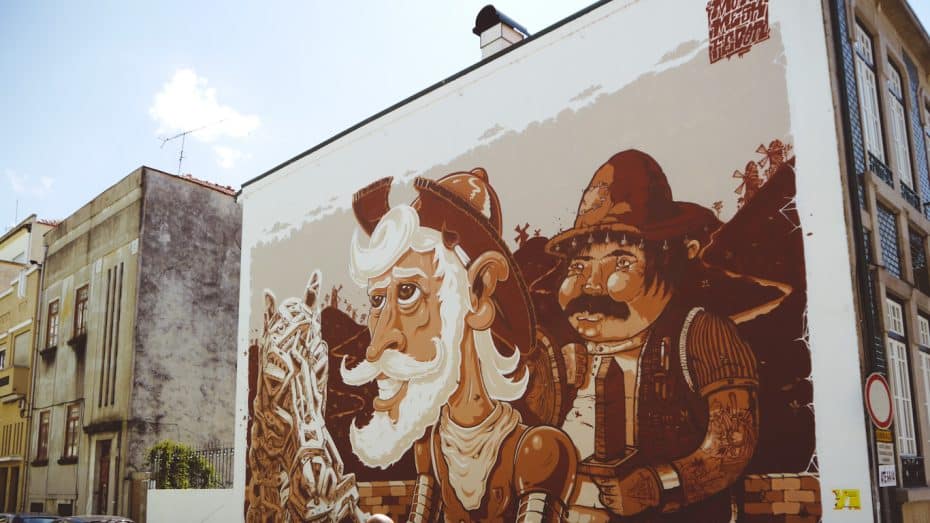
Try not to miss a visit to Centro Comercial Bombarda. It’s more than your standard shopping center; it’s a hub where local designers showcase their fashion and craftsmanship. You can pick up a unique souvenir, piece of clothing, or a handmade gift that can’t be found anywhere else.
If you’re feeling peckish again or need a caffeine top-up, there are plenty of cozy cafes sprinkled around, offering specialty coffee and traditional pastries.
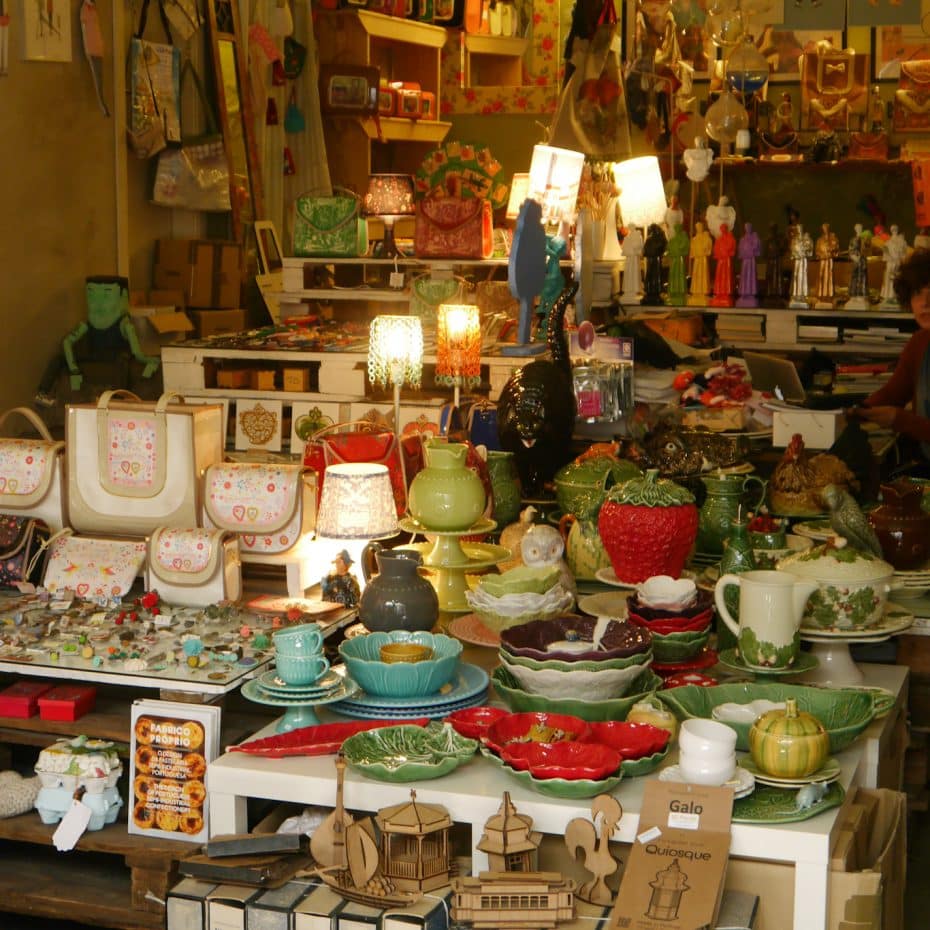
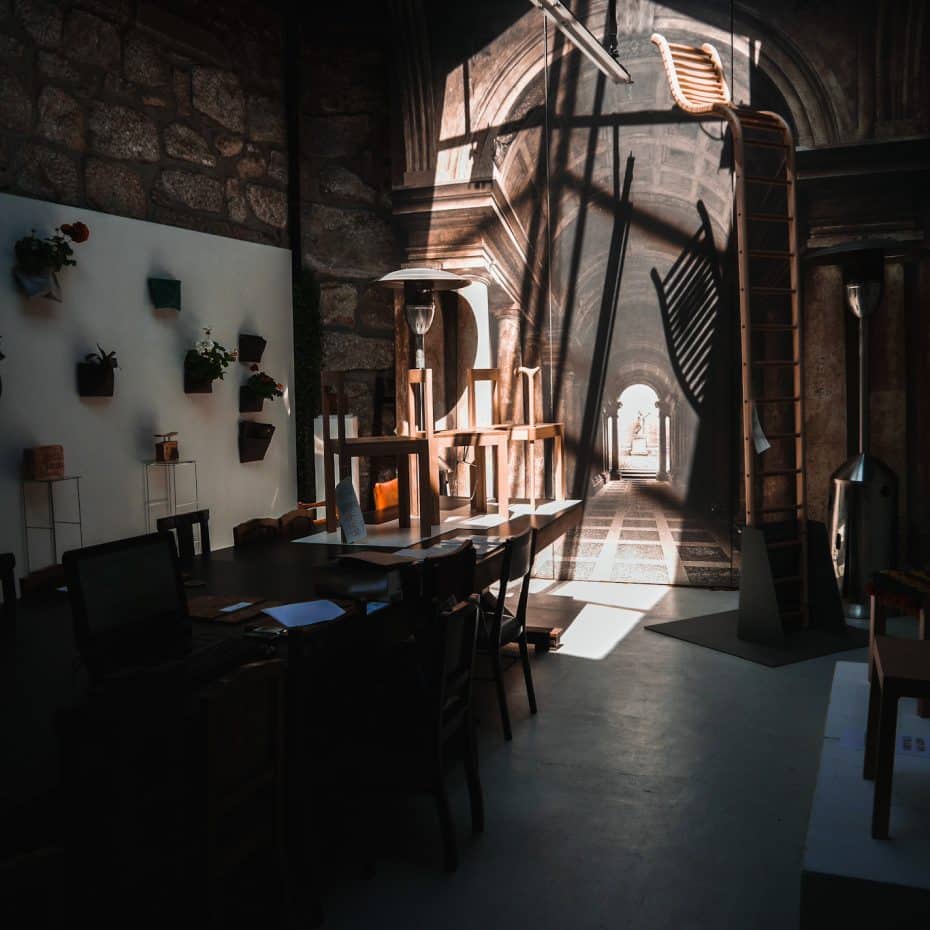
Evening: Francesinha and a night out
After an enjoyable afternoon wandering around Bombarda and picking up some unique souvenirs, we return to our hotel for a quick power nap before heading out for dinner. Tonight, we’re excited to try the famous Francesinha sandwich. Jorge, the travel guide we met earlier, and many locals insist that there’s only one place worth trying this delicious meal: Cafe Santiago.
The Francesinha is no ordinary sandwich. It’s a multi-layered marvel consisting of bread enveloping thin slices of steak or roast meat, complemented by linguiça (smoky Portuguese sausage) and sometimes even fresh sausage like chipolata or a type of cured ham like mortadella. The assembled sandwich is then blanketed with molten cheese and then drenched in a thick tomato and beer sauce with chili. It’s generally served with a pile of crispy fries
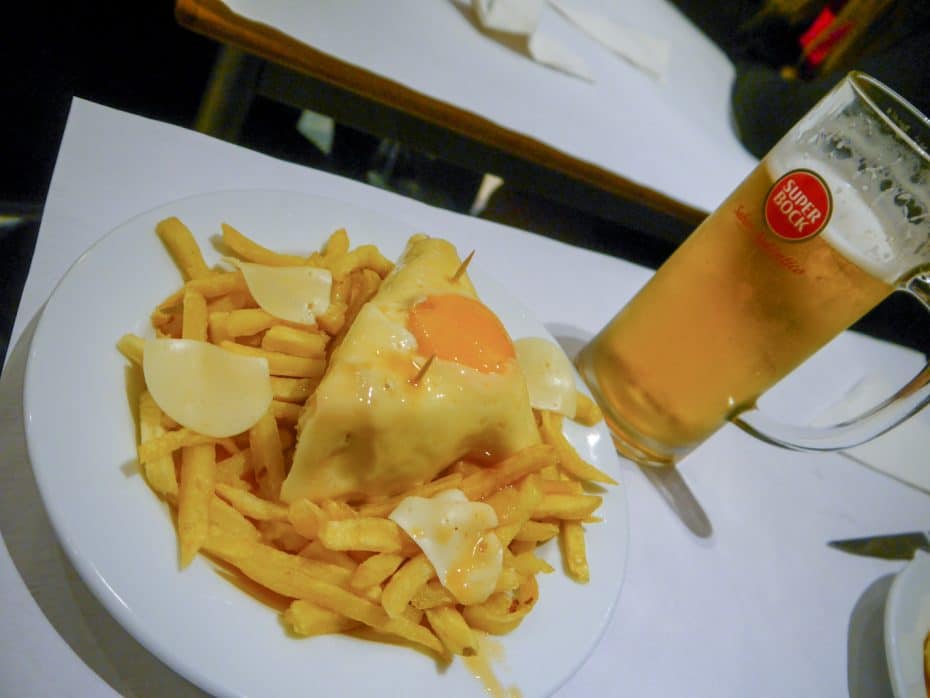
According to local food lore, the Francesinha was invented in the 1950s when a returnee from France sought to adapt the croque-monsieur to Portuguese tastes.
After enjoying the flavors of the hearty Francesinha, we explored the city’s vibrant nightlife. At night, the area surrounding Bolhão Market buzzes with energy, offering several bars and venues.
More Ideas for a 2-day Trip to Porto
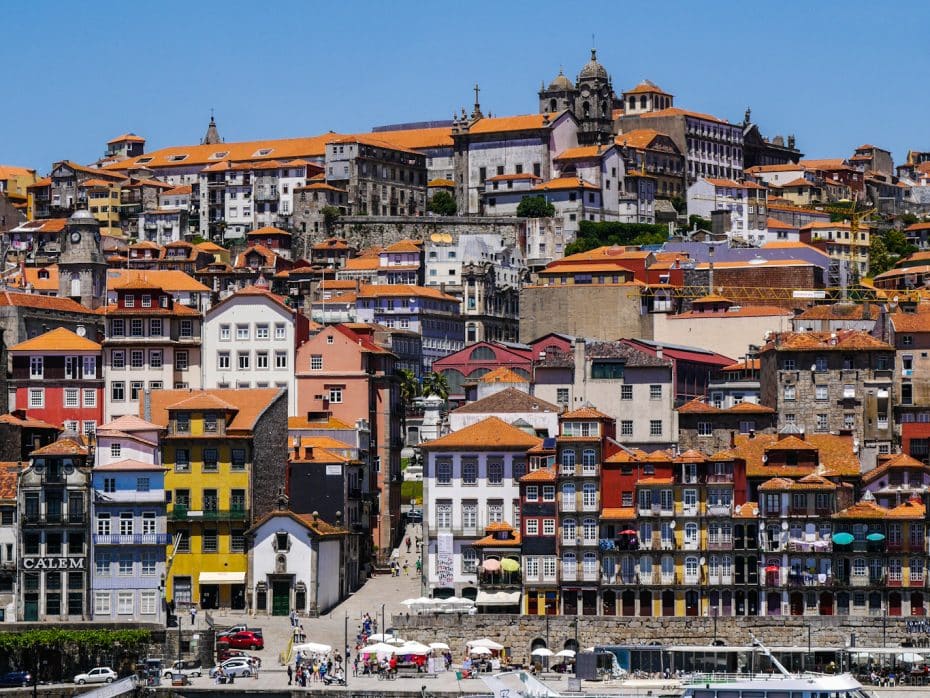
Above, we’ve shared our perfect travel itinerary for seeing Porto in 2 days, but there’s a lot more to explore in Porto. Having visited the city three times, here are some other places you can check out if you have extra time:
- Livraria Lello: Explore Livraria Lello, one of the most beautiful bookstores in the world. It is known for its stunning architecture and is rumored to have inspired J.K. Rowling’s Hogwarts.
- Serralves Museum & Gardens: Visit the Serralves Museum for contemporary art exhibits within a stunning garden landscape. The complex also includes an Art Deco villa.
- Foz do Douro: Relax on the beaches at Foz do Douro, where the river meets the Atlantic Ocean, and enjoy seaside cafes.
- Crystal Palace Gardens: Wander through this amazing park, enjoying the beautiful flora and the serene atmosphere. Don’t miss the stunning views of the Douro River from the terraces.
- Casa da Música: Visit this iconic concert hall, experience its unique architecture, and, if possible, attend a live music performance.
- Douro Valley: If you like wine and have some extra time, venture further into the Douro Valley; this cultural landscape is a UNESCO World Heritage site offering stunning scenery and traditional Quintas (wine estates) to explore.


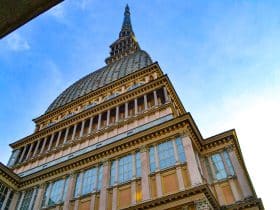
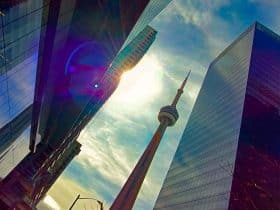
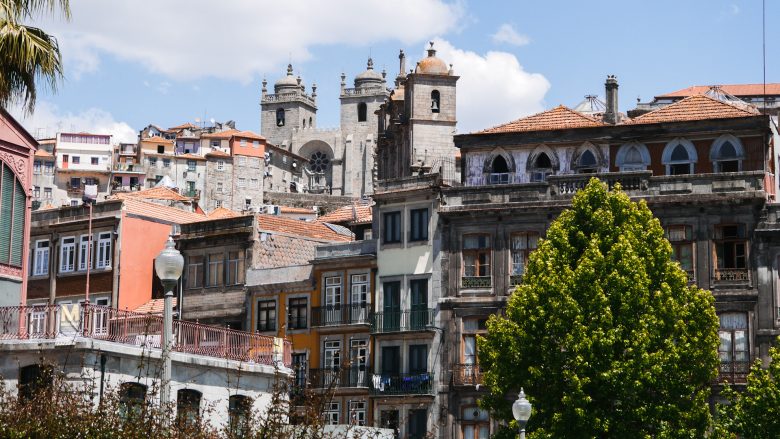
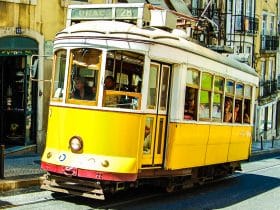
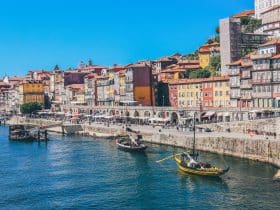
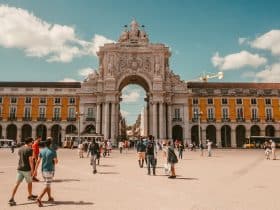
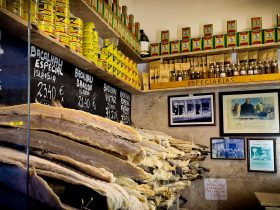

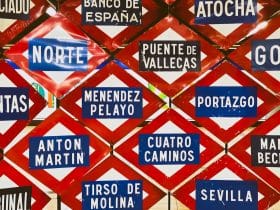
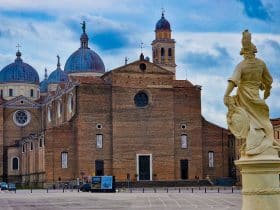

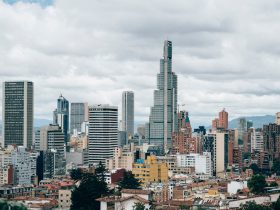
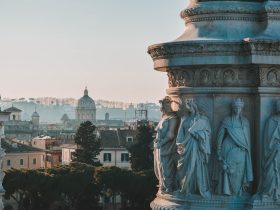
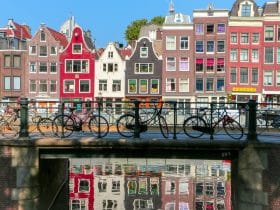
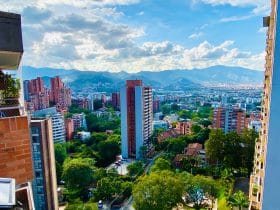
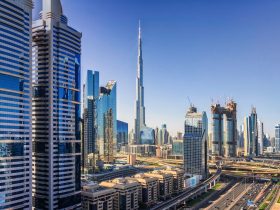
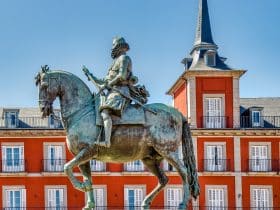
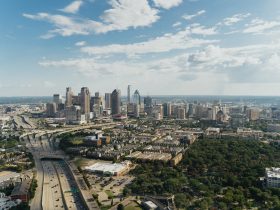
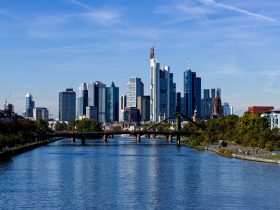
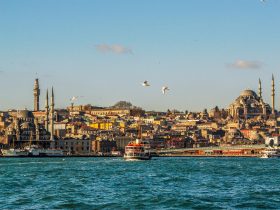


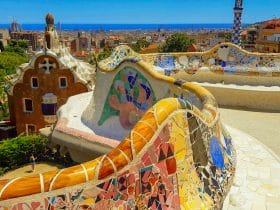
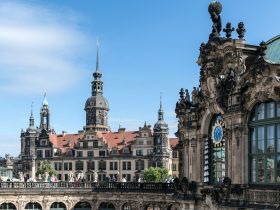
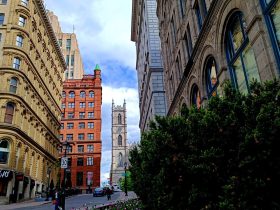
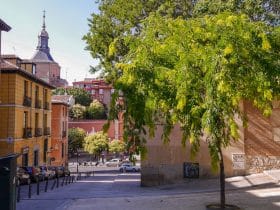
Leave a Reply
View Comments